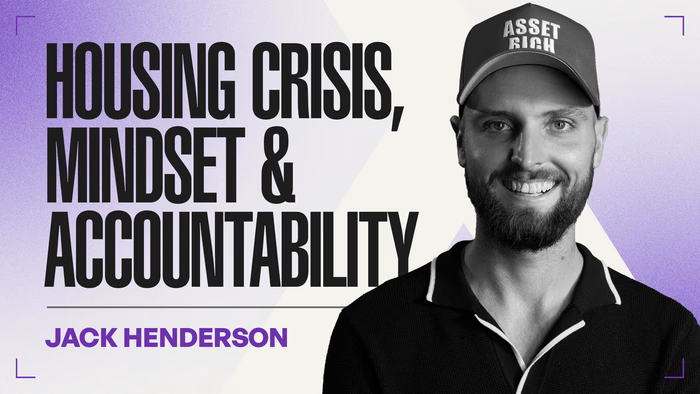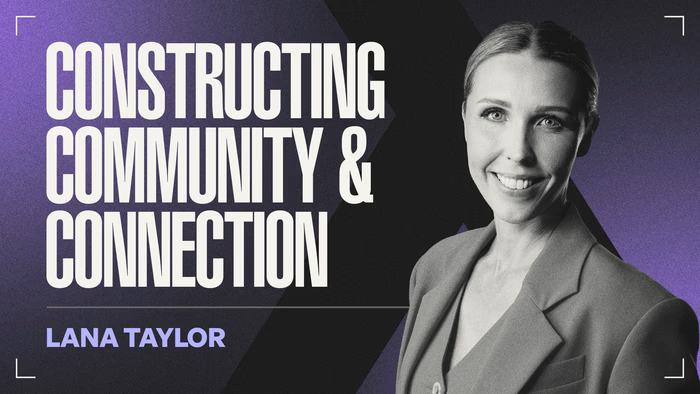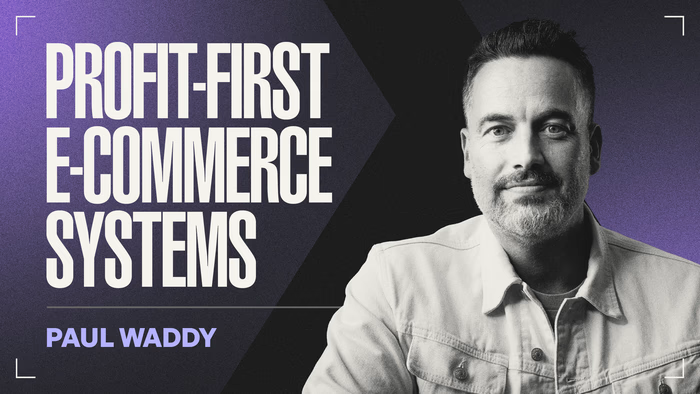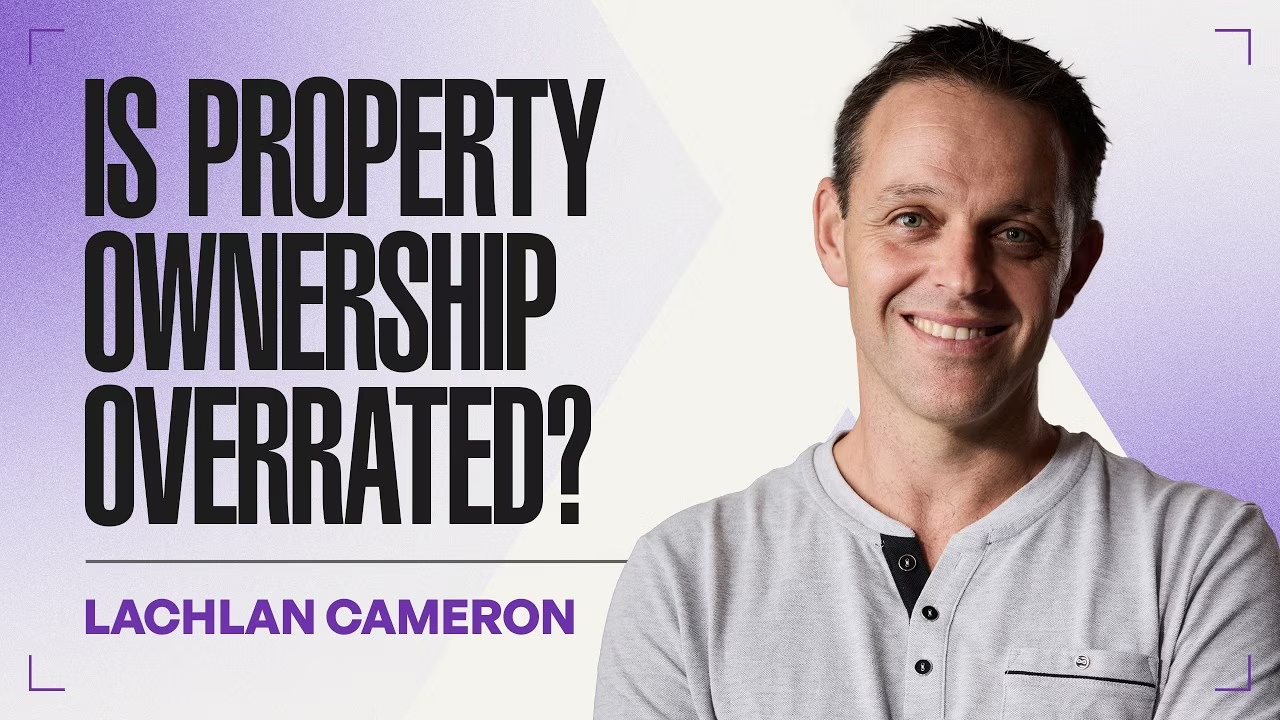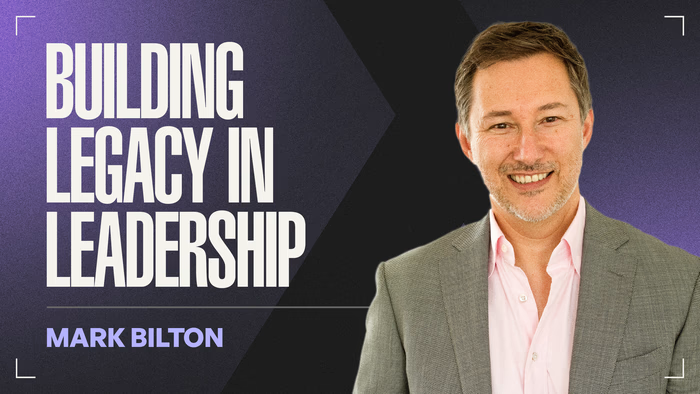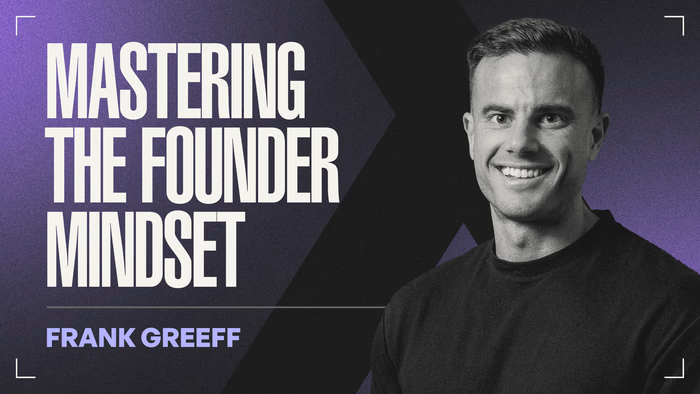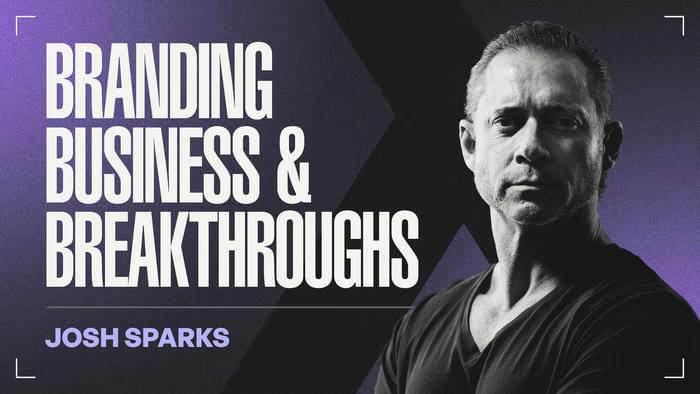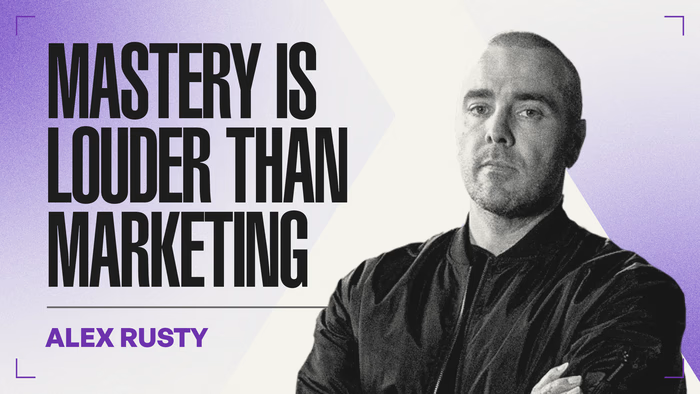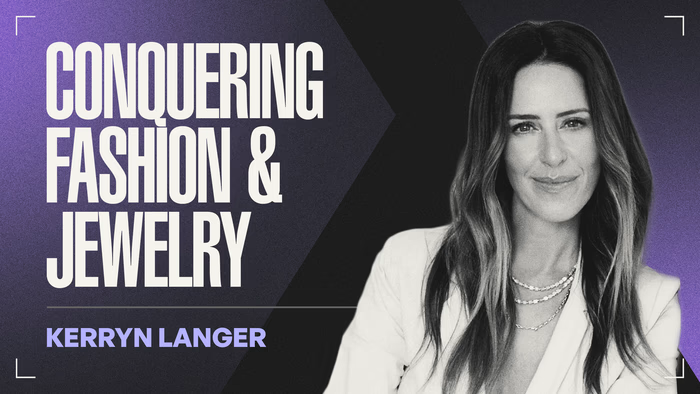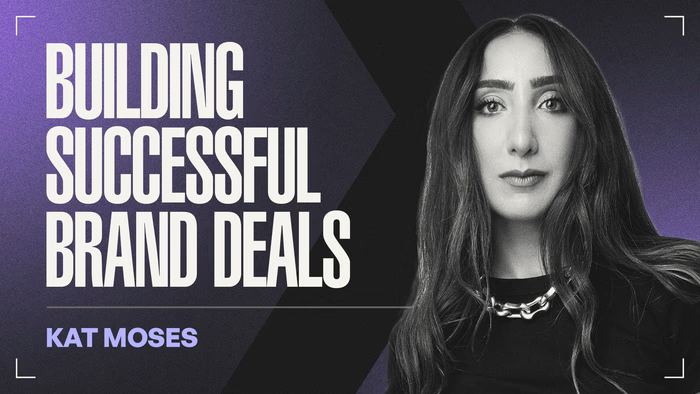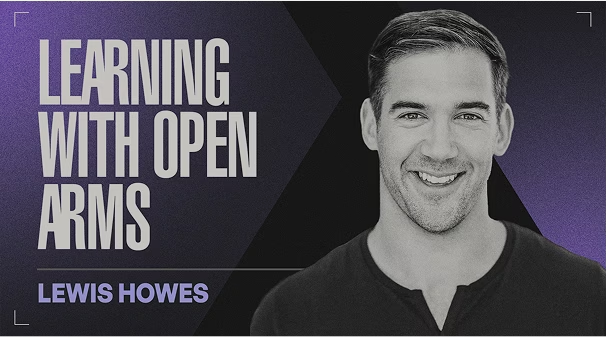


TLDR
Summary
Jason Georgatos, President of Partners for Growth, a global investment firm specializing in debt financing for high-growth companies, explores the capital landscape for entrepreneurs. He dispels the myth that a capital raise equals success, emphasizing that success lies in the value created after securing funding. Georgatos highlights that most businesses are SMEs and not a fit for venture capital, which operates on a "hits business" model, betting on high-risk, high-return companies. He details the difference between equity (selling a piece of the company) and debt (a repayable loan), advocating for founders to use debt when they have high confidence to avoid unnecessarily giving away equity. A critical piece of advice is that an investor's decision is highly driven by the resilience and character of the founders, especially in the early stages where data is scarce.
Highlights
- Success Metric: Raising capital is not success; success is defined by the value created and the return on capital after the funds are secured.
- The Valley of Death: Early-stage venture is tough because money is raised without revenue, essentially "buying time" to achieve product-market fit before the capital runs out.
- Greed vs. Fear in Investing: All investors struggle with the risk-return graph, which is fundamentally a psychological battle between greed (potential upside) and fear (potential loss of capital).
- AI Market Psychology: The AI space is currently driven by greed due to huge potential returns, but it is tempered by the fear of open-source tools quickly disrupting high-value business models.
- The Hits Business: Venture capital (VC) funds operate on a "hits business" model like Hollywood, where one or two blockbuster investments are expected to return the entire fund and cover all the failures.
- Debt vs. Equity:
- Debt (e.g., from Partners for Growth) is like dating—it's temporary and the founder pays it back, retaining more equity (the "pie"). It's best used when the founder has high confidence and certainty of generating more value than the cost of borrowing.
- Equity (e.g., from VCs) is like marriage—it's permanent, and the investor gains a perpetual claim on the company. It's best used when the founder is less confident or needs strategic help.
- Debt Trap: The greatest trap with debt is taking on too much. Just because a lender offers money doesn't mean the business should take it, as the lender gets paid back first in any liquidation scenario.
- The 3 F's of Funding: Friends, Family, and Fools are the most common initial source of capital because they are the most likely to believe in the founder's idea when there's no data to support it. The main risk is broken relationships if the venture fails.
- Founder Qualities: Early-stage investors primarily look for resilience and strong character in founders, as demonstrated by their ability to survive and persist through roadblocks. Bias for action and the ability to "sell" are also crucial.
- Australian Ecosystem Flaws: Australian banks (the "big four") are highly risk-averse and prefer to secure small business loans with a founder's personal property guarantee rather than lending against the business's cash flow, which historically has held back high-growth businesses.
- Taking High Agency: This means a bias for action and "doing" rather than just talking about an idea.
- Funding Pillars: The only three things you can borrow money against are assets, cash flow, or enterprise value.
Transcript
00:00:01 - 00:01:00
The number one rule of business is to stay in business. So you have to find a way to stay in the game. Not every company is a fit for venture capital. Then you get to the ones that are a fit for venture capital and 90% of those still fail. Jason Georgatos is the president of Partners for Growth, a global investment firm backing high growth companies. With over 20 years of experience, he is a trusted partner to some of the world's most ambitious founders. Investors are always struggling between that risk return
00:00:30 - 00:01:30
graph. I think there's a psychological thing to this in any investing. There's always a battle between greed and fear. I've seen it all. I've seen people commit fraud. I've seen a lot of crazy happen when people get desperate. There's a stat here I want to highlight and it's that the private debt in Australia is now worth 205 billion. A big thing is that the banks here don't like to take a lot of risk. So, you've got four banks in this country, the big four, and they've got a pretty good
00:01:00 - 00:02:09
little game going here. They own the market and they're four of the most profitable banks in the world. They don't need to take a lot of risk lending to small businesses. They've got a great business just taking deposits and lending against residential real estate, friends, family, and fools. Why is this the most common place that entrepreneurs seek capital? This episode is brought to you by Wick Studio. So for young entrepreneurs, if you're looking at cap raise as credibility or
00:01:42 - 00:02:37
status building, are people using this to justify their business's existence uh more than they actually need capital? Yeah, in some cases, yes. are sometimes they're looking at it as success. Like raising capital alone is not success, right? You got a bunch of money, but what have you done with it? And have you created any value? You've convinced someone to give you some money, whether it's debt or equity, but now you've got to actually go take that money, grow the business, get a return on it for them,
00:02:10 - 00:03:05
and make your business more valuable, use that capital to make your business more valuable. And so, I do think a lot of people get lost in the glamour of it, right? You you read all the press releases for tech companies. I mainly work with technology businesses globally and so I see this a lot in tech. People get really excited. They put out the big press release. We just raised 50 million. We just raised 100 million. Whatever. That may be a sign of success. Um but ultimately it's what you what you
00:02:38 - 00:03:39
create after you raise that money, what you do with that capital. And just look at all the unicorns that were unicorns, you know, 5 years ago. And a bunch of those are, you know, broken broken unicorns or, you know, hornless unicorns uh these days. And and so just raising even raising at a very high valuation is not necessarily indicative of success. So I think it can be indicative of success, but not always. Where do you think people are going wrong with this? Because if we're overinflating the value of a cap raise,
00:03:09 - 00:04:00
does that mean that these young entrepreneurs are putting their energy, time, and focus into the wrong part of their business? In in some cases, yes. Um, in in other cases, no. Um, you know, I mean, businesses do require capital to grow, right? You you've got to hire people, you've got to buy equipment, you've got to, you know, find customers, you've got to do R&D if you're building a tech business. um you know if you're running other kinds of business you have to buy
00:03:34 - 00:04:29
equipment you have to buy inventory if you're selling products so it's uh it it depends like a lot of things it depends and and I think you know we're kind of talking about a little area of you know funding high growth tech companies which is like a tiny section of the capital environment of the world most companies especially smaller companies are not really a fit for venture capital right you think about it if if you're growing a tech business that's going to get venture funding
00:04:01 - 00:04:53
You have to convince convince a VC that your business can be worth a hundred times what they're investing at today or maybe if it's a later stage VC at least 10 times. They have to think they're going to make a lot of money on your business. So that means your idea has to be really big. It's got to be scalable. It's got to be doing something different or going after an existing market and disrupting it in in a way that uh could create a lot of value. And most businesses, most businesses are
00:04:27 - 00:05:31
arememes, which are like the lifeblood of most economies, certainly the Australian economy or the US economy where I'm from originally kind of are the workh horses. And just real quick, can we define anme and and would you mind speaking to howmemes really keep or prop up the economy? Yeah, I mean there there's different definitions ofmemes, but think of anme is is any company that's that's doing anything from a a few hundred thousand of of revenue or turnover up to in in in some cases some people might
00:04:59 - 00:05:59
define it as up up to say hundred million or so of turnover. So these are businesses a lot of them and most of them are probably doing somewhere between a couple hundred thousand of turnover and 10 or 20 million of turnover. And so these are your your businesses doing providing all different kinds of services, selling you products, uh repairing stuff around the economy, selling uh different kinds of products and services to people, all the things that get that get done in our economy. Think about any kind of product
00:05:29 - 00:06:27
or service you buy uh around town. A lot of that stuff comes from SMMES. And how do they keep the economy floating? Uh because if everyone's talking about doing a $100 million exit, are we bypassing the core fundamental component of business, which is the stuff that actually keeps the economy alive? Yeah, I think it's easy to get lost in the glamour stuff, right? And you got to think that it's it's just the small percentage of companies that ever get to be worth more than $100 million. And
00:05:59 - 00:07:01
certainly when you get into multi-billions, you know, you're you're really small. I mean, I I mentioned before like not every company is a fit for venture capital. Most are not. Then you get to the ones that are a fit for venture capital and 90% of those still fail. So, it's a very low hit rate to get something that's going to be, you know, the next Facebook, the next um Atlassian, what pick your breakout tech company. Um it it's a it's a very small percentage of companies. Most companies
00:06:29 - 00:07:31
um that are successful, they tend to be these smaller businesses that by the way can be incredibly profitable for the founders and owners of those businesses and they can employ a ton of people. Uh when when I say they're the workh horses, they employ a lot of the a lot of the workers uh in an economy like Australia's. Um and I think you know they also create a lot of wealth for for their owners. So, you don't need to have a billion dollar business. You know, if you grow a nice uh $20 million business
00:07:00 - 00:07:59
and you own the whole thing as a founder and you sell that at some point for 20 million or if that business spits out 2, three, 4 million of profit a year and you own the whole thing. I mean, that that's not bad, right? I think that's fantastic. And a lot of people are trying to go right to the top of Mount Olympus, so to speak. And if if you look at if you look at the market and and and we take into account a stat that I saw recently from Suncorp Met way I think it was something that 98.7%
00:07:29 - 00:08:27
of businesses um close within the first 5 years of operating. So even just to succeed profitability um it it seems like the odds are stacked against you. Absolutely. Yeah. I which is why I think it's amazing. I think founding any company and making it successful, if you can stay in business, you know, five plus years and create a profitable, sustainable business, I think you've already accomplished so much. And that's one of the things I love about what I do is, you know, working with founders who
00:07:59 - 00:08:58
have actually somehow made it and made their business grow and get to a point where it's valuable, they've created something, it's freaking hard. Like, it's it's really tough. Entrepreneurship is tough. Um, running a small business is tough. Growing a venture scale business is also tough. It's a different kind of uh different kind of skill set and different journey than I'd say the SMB journey. But both can be incredibly rewarding uh for the founders and for the employees in those businesses.
00:08:28 - 00:09:29
And why do you think that building a business is so difficult? Oh man. Yeah. How how long do you got? I mean, let it rip, man. It's uh I mean, everything's against you. You're starting usually you're starting with limited resources. uh you're often starting with no capital, so you don't have money usually. Maybe you have a small amount of money. Maybe you've borrowed some money from some people or you're gone to your friends and family and gotten some money. Um it's it's hard to get started.
00:08:58 - 00:09:56
You need more than an idea. Uh I think I think it's more about action and execution early on than having the best idea. Like you have to be willing to take action if you're willing to do whatever it takes to get early customers. You got to convince people to you got to convince people you've got a product or service that is worth uh buying and that you've got a reason to exist as a business. And then you've got to once you get a little bit of success, you've got to figure out how to grow the
00:09:28 - 00:10:30
business. And you're usually doing all this without a lot of advice, without a lot of help, on your own, trying to figure stuff out online, probably by watching podcasts like yours, trying to figure out how to do this And it's freaking hard. So I, anybody who starts a business, one, I give them a lot of credit for having a crack, even if it's not successful. I think, you know, you had a crack, you went for it, that's that's awesome. And I think I think if you can get it to be any kind of size
00:09:59 - 00:11:18
where it's sustainable, you know, the odds are kind of stacked against you. And as you mentioned that often times people focus on the idea and how good the idea is versus the actual uh day-to-day action and rhythm and operation it takes to make capital. When you look at early stage entrepreneurs, h how many people overinflate the idea versus action? I I think it I think it depends on industry. So in in the tech space, right, in in the venture space, I I think usually most founders that are venturebackable,
00:10:38 - 00:11:41
they're highly highly actionoriented people. They tend to be real hard chargers for the most part. um they'll have a great idea, but ultimately if you look at the idea that most early stage tech businesses started with versus the idea they commercialized, it's often different. And I' I'd say maybe they've pivoted that three or four times. They might have a market they're going after and an idea about how they're going to do something better with a product or service in that market, but then they
00:11:10 - 00:12:07
get into it and the real world happens and they real they try to sell it and they think we're going to commercialize the business this way. We're going to sell a piece of software this way. We're going to create a service to do this and then they realize it didn't work. And so I I think a lot of at least tech entrepreneurship is running these really quick experiments very quickly before you run out of money because usually you raise a little bit of money and you have no revenue and you're buying time until
00:11:38 - 00:12:37
you can try to figure out if you've got a product or service that anyone that works anyone cares about and you're probably going to pivot it a few times. And so I think and again what I work mainly with companies that have already made it past that valley of death where they've you know raised money, they've got product market fit, they've actually got revenue of scale. That's when I start looking at tech companies. So in many ways I'm kind of looking with a lot of survivorship bias at companies that
00:12:08 - 00:13:09
have already made it to 5 million of revenue or more because that's kind of where I start looking at them. But really early stage is tough. Like if you're if you're an early stage entrepreneur, you know, you've got a rough idea what you want to do, but the reality is you don't know until you start trying stuff. You're probably going to pivot it a few times. And and that's why I think early early stage investing is hard. Like early stage equity investing, like if you're a venture capitalist or an angel
00:12:38 - 00:13:37
investor and you invest in early stage tech businesses, it's a hard path, right? because there's no business there. There's no numbers to look at. You've got a founder, maybe two founders, three founders maybe at the most, and maybe a early employee or two. Got a tiny team, you've got an idea, got some smart people. And so most of the time they're really looking at the founders themselves and they're looking at them as people. And the investor, the equity investor who's buying stock in
00:13:08 - 00:14:04
the company, the angel investor or venture capitalist who's coming in early, they're basically making a bet. Is this idea something interesting? Is this market big enough? It may not be the exact idea they ultimately end up executing on with the businesses, but it might it's probably in the same general space. But I'm betting on these founders. Are these the right people to do it? Can they do it? Do they have the technical ability? and probably more important the resilience because they
00:13:36 - 00:14:36
are going to hit a bunch of roadblocks. Are they going to be able to get through those roadblocks over them, around them, whatever? Are they going to be able to make it and survive when they get hit like a thousand times and make it to a point where they actually have revenue and they have a product and they get product market fit and they have a reason to exist. It's it's pretty hard, which is why most companies are not venture capital backable. And it's also why most ventureback companies don't
00:14:06 - 00:15:05
work and don't make it. It's it's a low hit rate business. And you said before the valley of death in business. What is the value of death? Oh, I think there's different different valleys of death. I think uh I mean I one I was describing was just venture where you've raised you've raised early stage money. Let's say it's angel money and you've raised enough to buy the company because again you don't have any sales coming in. You're building a product or service.
00:14:36 - 00:15:38
And just to quickly define that, what is angel investing? So angel investing is is really early stage uh investing where investors are buying equity. So they're handing over cash to a company and in exchange for that cash they're getting an ownership stake in the company. So I'm an angel investor. I'm going to come into a tech company. I'm going to invest $500,000 in the company. And that $500,000 might buy the company 12 to 18 months of time. And it's going to depend on what the
00:15:06 - 00:16:03
company's burn rate is. So, you've got a company that's an idea and it's a couple people. It's raised half a million dollars from an angel investor. An angel investor is just somebody who's willing to come in and take a shitload of risk by putting 500 grand into an idea. and really putting 500 grand into backing a team of early founders. And they're betting on those people that they can execute on whatever story those founders have told about what they're going to
00:15:34 - 00:16:34
do, what they're going to build. And really, um, and the angel investor is hoping that they can come in and they they're going to buy, you know, 10% of the company or 15% of the company, maybe 20 at the most. They're probably going to buy 10% of the company or less. And what they're betting on is if they make enough of these really early stage high-risisk bets that one of them is going to be 100x or a,000x. And that if they get one of those, it's going to pay back all the other shitty
00:16:05 - 00:17:04
deals they did. Yeah, that's kind of the angel investing game. And to some extent, that's the venture game, too. It's just a little bit less risky. it gets a little bit more derisked when VCs get involved because VCs get involved maybe when the company has a little bit of traction and so they come in a little bit later. The company's probably taken some money from some angels. So the company's sold some equity already and again you know when I say sold equity these companies every
00:16:34 - 00:17:33
company kind of think about it is it's starting with a pie and the founders own 100% of the pie. They own the whole business right at the beginning. And as soon as they start selling some of the some of the pie to other people, now they've got some partners in the business. And so if I'm a founder and I sell some to an angel investor, I've sold 10% of the pie to an angel investor. I now have a another investor. I own 90% and he owns 10%. And as I go on and raise more money, I keep selling
00:17:03 - 00:18:05
pieces of the pie over time. And eventually you could sell too much of the pie and you know the founders end up with with a small small amount. They started with 100% they might end up with 10 or 20% after they go through a full venture capital journey. Now the theory is if I'm making the pie really valuable if I own 20% of the pie at the end, the pie that I owned 100% of at the beginning when it wasn't worth anything. So, I owned 100% of a pie that was worth nothing and now I own 20% of a pie that
00:17:34 - 00:18:29
maybe is worth $100 million or more. So, that is the game that people are playing in kind of tech entrepreneurship and sort of high-risk angel and venture capital investing. I love where you're headed and I think that the the way you phrase it is perfect because if you're an entrepreneur and you're playing the game, if you will, and the first uh round of the game is okay, I need an angel investor. I have 100% of the pie, but my business is worth nothing. I'm going to chalk it up to the fact that I
00:18:02 - 00:19:07
need some capital to get this engine going, and I'm going to calculate it based on burn rate. Now, I understand burn rate is how much um gas or money we're using week to week, month to month before we run out of capital, right? That's exactly right. Yeah. So, then let's say you go into the the mind of a founder for a moment. What is it that you're looking for? like what are the key indicators of a founder that if you're betting on that horse that that gives you some sense of confidence?
00:18:34 - 00:19:30
Yep. Yep. So again and what I do so I I lend money to tech companies. So I come in a little bit later and so we're looking at what I look at specifically myself. I'm looking at metrics. I'm looking at numbers. I'm also looking at the founding team. I'm looking at who the investors are. I'm looking at a whole bunch of of things. Both I'm looking at data. I'm looking at quantitative things. I'm looking at qualitative things. Some of the qualitative things I'm looking at are
00:19:03 - 00:19:53
similar to maybe what an early stage investor like an angel or a VC would look at. But I think the difference is I've at least got some metrics to look at and I've got numbers. I've got a business that's working. I've got some sales. So, in some ways, my job's easier and I've got a different job because I'm lending the company money. I'm hoping to get paid back and I'm taking different risk than someone who's coming in very early. Uh so someone who's coming very
00:19:28 - 00:20:23
early, I'd say most of what you're looking at early on is you're looking at the people and you're making an assessment on the people and you're you're kind of you're back in the founders if if you're an early stage equity investor. And when you're in that predicament, like what are you looking for in the founder that gives you a green light and what would give you a red flag? Yeah, I I think I think I I said it before, but resilience I think is probably the the
00:19:54 - 00:20:53
biggest thing. And you know, I I've done some early stage investing myself, but it's certainly not my main business, but the people I've seen that have been really successful in picking those early companies, I think it's been backing resilient founders. And when you say resilience, what exactly do you mean for the listeners at home if they're thinking to themselves, I'm a resilient person? Like how do you really define that? What what is that actually? I think it I think it's basically that you
00:20:24 - 00:21:24
don't give up easily. I think that's really what it is. And I think that's it's really hard to tell. And and this gets into it. I think it's easy to say I want to back a resilient founder, but it's really hard to freaking find one and and to know because we can all seem resilient. And how do how do you know when you've just met someone? How do you make an assessment on them? And and that's why I think early stage investing is really hard. And I think some of the guys that do it really well, they're
00:20:54 - 00:21:50
intuitively I think they know. Yes, you can do background checks. you can you can understand people's lives and what's brought them to this point and I think that can tell you something about them as a person but you're making educated guess. I mean ultimately you're you're making a guess and a founder you might think this guy's definitely resilient. You might get into it and they might fold very easily or someone could look great on paper. you know, they they went to Harvard Business School and they've
00:21:23 - 00:22:18
got all every accolade you can you can have in the world and they give up at the first sign of uh you know, a real thing that doesn't go their way. Or you can meet other other people that have, you know, more of a street fighter background and, you know, they've been through a lot of hard knocks in life to get even to the table of where they are now. And maybe that person does better, but that's not guaranteed either. You know, we're we're all different. We all have different life experiences. I've
00:21:49 - 00:22:56
got some funny views on it, but um I think early stage tech investing as an equity investor, I think you have to have the skills to be able to pick good founders. You have to have access to good deal flow, too. You have to have access to good deals. You have to be able to discern though which founders to back. And then the other thing I would say is don't discount luck because there is luck in venture capital investing too. Because if one out of 10 companies is going to make me all my money, what if I miss
00:22:23 - 00:23:17
that one out of 10? What if I miss that deal for some reason and I don't get it? So, but what if I went through the same process and I'm a really smart investor and I went through that same process, but I don't get into that one deal that was going to be the 100x and I do the I do a different deal instead. What if I didn't get that deal because I don't know, the founder didn't like my shirt or something like to me that turned on luck. You know, it was nothing about my process, nothing about my
00:22:50 - 00:23:54
decision-m I wanted to do the deal. the founder didn't like my the founder didn't like the way I was dressed or maybe you know we we just didn't didn't vibe we didn't hit it off so it's I think early stage equity investing is really hard to do it well and if you look at if you look at the returns in the US where we have the most venture capital data it suggests that there is a small universe of VCs that do really well and generate high returns consistently over many years and it's probably
00:23:22 - 00:24:20
The firm the firm names might change a bit over the years, but there have only been like a handful of firms that have consistently done that for you 30 years. People like Sequoia and Excel and Benchmark and people like that. And part of the reason is they have great deal flow and they see great founders, but they're also clearly good judges of people as well. So the two parts of the puzzle, one is deal flow meaning you're talking to a lot of potential founders with a lot of potential ideas. And I understand in
00:23:51 - 00:24:53
entrepreneurship you're using pattern recognition at a certain scale. When you don't see enough of something, you can't see the patterns. So deal flow I can imagine is just giving you the volume to look at. So then you can cherrypick more selectively. But the second caveat you said which is luck is knowing uh you know how to how to get consistent luck on your side versus working against you. Yes. Now, when you're when I I do think though to to your point, just to expand on that, if you if you expand
00:24:22 - 00:25:25
your your luck grows, right, if you have more surface area, right? If you see more deals, if you see the right deals, not just seeing more deals, but you know, Sequoia, every entrepreneur in the world in Silicon Valley wants to work with them. Who's Sequoia? So, Sequoia is probably the most successful, well-known venture capital company. Um, certainly that I know of. They've got amongst the highest returns over a 40-year period. They're a huge huge fund in Silicon Valley. You know, think of a tech company. They've
00:24:53 - 00:25:51
probably backed them. And they tend to get into all the really good deals. Now, there's other firms that can compete for those same deals, but if a founder has a choice, they're going to go with Sequoia because they have the pedigree and they've they've worked with many other successful founders. And so there there's almost like a a positive bias they have that they've built because they've had so much success where other tech founders want to want to work with them. When you look at a brand or
00:25:22 - 00:26:23
business or an institution like Sequoia, what do you think it is that they have beyond the access to a greater surface area of luck? What is it that gives them the ability to have the foresight as to what founders to back and and what founders to not? I I think they've got well they got 40 years of pattern recognition and they've they've got very smart people clearly they can they can get the best and the brightest on the investing side because if if you're an upand cominging equity investor and you
00:25:53 - 00:27:02
want to be in venture capital again they're the place you would want to go you know them or someone like them Excel or Benchmark or you know these more recently maybe in Andre and Horowitz uh more more recent years um so they tend to attract the smart uh up and cominging investors, too. Clients want it all. A slick looking website that can run their business and scale with their success. Wix Studio is built for that. Plan out your client's whole site in seconds with AI powered site mapping and wireframing. Then when
00:26:27 - 00:27:46
everyone's on the same page, jump into the creative. Starting off in Figma or in the Wix Studio editor with super precise layouting tools like grid, stack, and flexbox. Go above and beyond the brief with no code animations, custom CSS, and built-in business solutions. And make your whole vision responsive in a click. And there's zero need to break a sweat when clients grow fast. A dynamic CMS with global design settings and reusable assets lets you turn one page into hundreds. Design smoother and deliver sooner. Go to
00:27:06 - 00:28:08
wixstudio.com. And if you think about an investor, typically the notion that comes to mind is they're seeking an ROI. They want some kind of upside for themselves. Otherwise, why be in the game of investment? this pressure to create ROI, how does this persuade the judgment of the investor and how does this affect their decision-making process in general? I mean, investors investors are definitely trying to make as much money as they can. If you're an equity investor, you're trying to invest in a
00:27:39 - 00:28:41
company and hope it's worth a lot more than what your entry point is. I mean, that that is the name of the game. Um, and you've got so you've got that's return, right? expected return, what you think this company could be worth in the future, and you also have risk and what's the risk of getting that return. And so investors are always struggling between that risk return kind of kind of graph and and really really I mean maybe a simple way to describe it is actually it's greed and fear, right? They're
00:28:10 - 00:29:04
they're going between greed and fear. They're greed is the upside. I I'm investing in this thing. I think it could be worth a lot of money in the future. And fear is the fear that I might lose my money and it might not work out. And I I think I think there's a psychological thing to this in any investing. There's always a battle between greed and fear. And we talk about it internally in our partnership a lot. You know, is this greed or fear? How are we feeling about this? Is it a
00:28:37 - 00:29:51
time to lean in? Is it time to be more careful? And if you if you take your opinion of where the market is right now, Yeah. Yeah. Do you think at large the tech space is being led by greed or by fear? I think the AI space is definitely by greed for sure. Like not not even close. What tells you that? The amount of capital going into AI businesses, the excitement um every company pivoting to become an AI company. So every software company is now an AI company. Um, the valuations that AI companies are
00:29:13 - 00:30:23
able to raise raise money at are incredibly high, but it's hard to know are they high or are they justified because there's huge potential return in in AI, right? There's huge productivity gains across the board. Um, so there's a ton of excitement. I think the I think the fear part is we're still trying to figure out exactly how it's all going to be commercialized. Like there are all these cool AI tools that come out and some of these companies go from like zero to 20 million in revenue, 50 million in
00:29:49 - 00:30:50
revenue, even 100 million in revenue very quickly and then ChatGpt just releases a tool six months later that's open source and does exactly what that business did. And we've already seen a few examples of that. So, it's it's um it's it's hard it's hard to know how it's going to be how it's going to settle out and like where where the value is going to acrue um in the AI space because it's early. But it's hard to deny the excitement. I mean, this is changing the world and changing every
00:30:19 - 00:31:31
business, changing how we live our lives, changing how we do everything. And that's that's incredibly exciting. Um so, I I'd say it's more it's more agreed. Um, but it's early days and usually what I've seen in tech uh since since 2002 when I started working in in tech is people get super excited about all kinds of stuff and you tend to have cycles where people get too excited and there's an overinvestment of capital of equity and usually there's some kind of
00:30:54 - 00:31:52
correction and system resets itself. And this is why it's so hard to make money in in venture capital and in tech in general. Um because not only you have to build a great business, you have to build it at the right time and you know you need a little bit of luck about when you build it too, which part of the cycle. Uh because sometimes you you can have everything right, but you have the company come of age at a time when there's not a lot of money around and maybe that prevents you from getting
00:31:24 - 00:32:21
that next round of financing or getting to that point where you would have made it as a founder. There's a there's so much in here I I have so many questions, but if I were to stay vigilant on something I I would love to know is with where you're seeing everything going right now with tech. There was a conversation I was watching with Gary Vee and he was talking about how uh at the beginning of the internet, restaurant owners were saying that the internet's a joke. Like I don't need a
00:31:52 - 00:33:07
website. I have patrons that love me. Uh they have my menu on their fridge and then you know 5 years later if you don't have a website as a restaurant you don't show up on Google. No one comes to buy from you. Are we seeing that kind of change in the market right now with businesses moving from old ideas to new integrated tech based ideas? I I think I think it's coming whether people want to believe it is or not. I think I mean AI is it it's so inexpensive to use and adopt. I think the people that adopt it will
00:32:30 - 00:33:34
maybe not in every industry but in a lot of industries even even in industries that aren't as susceptible to disruption. People who adopt and embrace it will probably do better. I think I think it's moving faster too because if you think about the internet, you had to buy a router, you had to pay a bill, you were limited on your bandwidth. Um you had to use a computer arguably for like the first time ever. So like I think the the friction between adoption um for the internet was was maybe slowed down by 10
00:33:02 - 00:34:09
years I would say whereas now everyone is able to access AI through a web browser and punch in a prompt and immediately get an outcome. So so the friction between uh conceptually testing something and doing it is like radically and significantly smaller. That's right. That's right. And it's and and most people today are digitally native, right? Most people grew up with devices in their hand. And you know, maybe older guy like me who's more a Gen X, right? We kind of had like an analog
00:33:35 - 00:34:33
upbringing and a digital adulthood, right? But most people that especially people that are thinking younger people starting a business today, they're digitally native people. They've grown up with a phone their whole life. They've grown up with the internet. all these things are ubiquitous to them and and are normal for them. And I I think that's absolutely right. It's and it's also so low cost to approach these tools. You know, when you want to get this kind of computing power, you know,
00:34:04 - 00:35:06
think about 20 30 years ago when the internet was getting going, you need servers. You need Exactly. There was no AWS to rent server space from. There was none of this stuff existed. So, while AI is like incredibly disruptive and it will certainly result in some job loss, it's going to disrupt a lot of businesses, disrupt industries for sure. Exactly how and when and what that looks like, nobody knows for sure, but it will happen. It's also an incredible opportunity and it's there's
00:34:35 - 00:35:37
probably been ne never been a better time if you're a founder who is has bias to action, has agency, and is willing to give it a go. There's never been a better time to start a business because you can do it really cheaply. If you've got a great idea, if you've got taste, if you've got a point of view, you don't need a lot of money to start something if you're if you're willing to hustle and you don't need to be technical now. You can you can vibe code things or you can cheaply hire people to
00:35:06 - 00:36:08
help you do that. I just want you to touch on this because I think vibe coding is like the coolest thing ever where where people that have no idea how to code stuff can just vibe out through conversation in AI and have it spit out prompts. But can you just define vibe coding? Well, I I think you just defined it pretty well. I mean, you can use natural language to talk to talk to AI and ask it to do things for you, including code things for you. And it will write it will write code for you. And if you can prompt it well enough,
00:35:37 - 00:36:38
it's all in the prompting, I think, how you how you interact with that particular tool. But there are some tools out there that are, you know, fairly easy to use where you can use mostly language like you and I are talking to each other right now and we can we can talk to the computer and say, I want you to create this for me. Whether it's a website or a simple web app or or something like that, um, that stuff's already pretty good. And of course for people that are a bit more advanced, they're using this stuff to
00:36:06 - 00:37:16
make their coding go even faster uh to get build things with, you know, very few software engineers. A really good software engineer can now use use this type of coding um use AI to code a lot faster and better. But, you know, again, you could be non-technical. you and I could probably, you know, whi whip something out um vibe coding it and it it's pretty good. It's only going to get better and it's getting better at a really high rate of speed and I think that just takes another barrier away,
00:36:42 - 00:37:48
right? Cuz you know, for the last 20 something years, you've had to hire really expensive software engineers to grow and scale your tech business. you're still going to need some of those people, but you know, you you probably to get like a proof of concept out there and, you know, an early, you know, kind of minimum viable product out there, uh, you can you can probably vibe code that depending on what it is. Now, you describe capital funding as the world of the hits business, likening it
00:37:14 - 00:38:10
to Hollywood's making blockbuster films. If you think about venture capital, yeah, venture capital, I would say it's different. Private equity is different. And so there's different kinds of equity capital. So let's define that quickly like what are the different types of capital. Um and then we could maybe throughine one of them uh that you feel that's most native. Sure. So I mean there there's kind of two there's two types of capital you can raise as a company. You can raise
00:37:44 - 00:38:47
equity, which we've been mainly talking about. So you could sell that pie we were talking about. You could sell a slice of the pie to someone and they now own a slice of the company. You now have a business partner could be any percentage of the company you sell and and that's selling you're selling stock or equity in a company and the person you're selling that to they now have a claim on the future profits of the company uh with you. So if that company gets sold later and they own 5% 10% they
00:38:15 - 00:39:12
get to participate and you sell the company for $100 million they get five or 10 million bucks. So that's equity. And equity's got some real advantages, right? You you sell a piece of the pie to someone. They give you money. There's very few strings attached to that money. You get the capital and you get to use it for whatever you need to grow the business, whether it's hire employees, buy inventory, buy equipment, develop technology, whatever it is, uh hire salespeople, um grow the business, make
00:38:43 - 00:39:42
the pie more valuable. Uh that is that is selling stock. It's it's really helpful because for a company, if you sell stock, the money does not have to be given back to the investor. You might give them a promise. I'm going to try to grow the company to this level and we're going to try to exit in the future and hopefully someday you can pay them back. Um, and there's different kinds of equity capital. We talked a little bit about in the tech space. You got angel investing money which comes in really
00:39:13 - 00:40:17
early and these are small checks to get little startups off the ground in the tech space and you have venture capital which comes in a little bit later to provide larger checks but also to grow the company but still real risk capital. And as you go kind of down the down the spectrum, you get to private equity money. And you've probably heard a lot about private equity. It's in the press a lot, etc. Private equity tends to invest in businesses that are more mature. So these are businesses that are
00:39:45 - 00:40:47
already profitable. They're large businesses. They tend to be um you know, they tend to be profitable enough to where a private equity fund can look at the business and say, "Okay, this business has been around for 10 years." And I could look at all the numbers and I could look at the growth rate and I could look at the profitability and the margins and I could decide is this a good business and do I want to own this business and then what they'll do is they'll invest in the company usually
00:40:16 - 00:41:15
buy majority of the business so they take control of the company and they'll often use debt to fund some of that. So they'll use the company's cash flow to be able to borrow money to help them buy the business. Kind of like when you buy a house and you go to the bank and right say, "I want to buy the house and I only want to put 20% down and the bank will give you the other 80%." So private equity funds effectively do that. They will buy a more mature business. They'll hope to grow it and increase the
00:40:46 - 00:41:36
profitability and size of that business, but they'll also hope by using leverage or debt, they'll hope to use that to help them instead of if they're going to buy a business for 100 million, instead of using 100 million of equity to buy that business, they might say, "We're going to buy this business for 100 million and we're going to use 50 million of debt and 50 million equity." And as long as we pay the debt back using the cash flow of the business, we own 100% at the end even though we only
00:41:11 - 00:42:14
put in 50 for that $und00 million business. So that that's how effectively private equity works. So if if you look at venture investing, you've been quoted to say that you look at it like the hits business as Hollywood would look at the movie space saying that if we back 10 films, one of them might be a blockbuster. Yep. Is it the same notion when you're investing early stages in business? I think when you're investing early, you you have to have a bit of a portfolio type of approach to that because even if
00:41:42 - 00:42:42
you don't think that, just the the numbers and all the history of uh ventured returns suggests that when you look analyze venture funds, there's almost always one or two companies, maybe three in a fund that return the fund. Okay. So then if you look at a fund, it might be what 10 businesses. It it depends on the size of the fund. It could it could be could be more could be could be a little bit less. So let's speak in I guess layman's terms of like what's likely to take place when
00:42:12 - 00:43:14
when a company is putting together resources to then invest. I understand like you said they're looking to spread that investment across a myriad of businesses, not just backing it all on one. Break that down for me like what exactly is taking place? Is it a large number of people pulling their capital together to then bet on the right horses? It's like explain that for me. Effectively what funds are, you're you're pulling money from savers, from people who have excess capital, excess
00:42:43 - 00:43:35
cash, right? And you're taking that money and you're investing it. And by the way, that's the case for any strategy, whether it's, you know, what I do, which is run a a niche private credit fund that lends money to tech companies. We do the same thing. We take money from savers, people who have excess money. That could be people like superanuation funds. That could be family offices. That could be really rich people, high net worth individuals we call them. So wealthy people that
00:43:09 - 00:44:12
have excess cash to invest and are looking for a certain return and are willing to take a certain risk. Uh they they can invest in these types of of funds. So most most of venture capital and private equity money is raised from what are called institutional investors. And institutional investor is just a fancy word which means could be anybody from a super fund, a pension fund, family office, a foundation, some kind of sophisticated investor who has a lot of extra cash and they don't need it
00:43:41 - 00:44:36
back right away and they're willing to take some of it and put it in a fund that might have high risk. You know, again, you mentioned the hits business. If they invest in a venture fund, they're investing hoping that that venture fund can deliver them a really high rate of return, much higher than they can get by investing in the stock market in the public markets, let's say. So, if you're at the helm of a venture fund and you're looking out there and you go, "Okay, we want to put 10
00:44:08 - 00:45:01
businesses in here." Do you try to spread them out by having different types of businesses or do you try to, you know, get 10 of something similar? It it's going to depend. You've got funds with it depends how I mean how long is a piece of string. You've got funds that are focused on now you've got funds that are just AI only. We only invest in AI companies. So everything they would invest in is in the AI space. There might be different companies doing different things within AI. Um you've
00:44:35 - 00:45:37
got companies that just do life sciences and we only invest in biotechs or medical device. You've got uh venture funds that just do SAS and we're a vertical SAS only fund. Like that's all we do. any of people that are more generalists like we play in the tech space and we play generally in in tech and software and maybe we do some healthcare maybe we don't. So you have a crazy number of of different uh approaches to this. And if you're a founder and you're looking from the outside in, is it more
00:45:05 - 00:46:01
beneficial to get funding from someone who's a specialist or someone who's a generalist? I would say, you know, a specialist can be great. They probably have connections in the industry. They understand your business. They understand the opportunity. Maybe if they're a specialist, they can afford to pay a higher valuation, which might be a good thing if you're a founder. You give away less of that less of that pie you're you're trying to keep. Um, but that doesn't mean that you should dismiss
00:45:33 - 00:46:42
someone who's not a a specialist. There could be other other factors there. I think with venture, you know, I think venture, how you get along with with your investors is super important because venture is really a marriage. You know, venture is you're taking let's say you raise series A money from a VC and just before we move on like for the listeners like define series A and VC real quick. So VC is a venture capitalist. So venture capitalist I'm investing in tech companies. on buying equity in early
00:46:08 - 00:46:58
stage technology businesses. Series A, series B, series C. You probably hear these terms thrown around a lot. There's nothing complicated about it. It just means like the first round of venture capital financing. That's all it means. So is like the first it's like the first batch of investors. Yeah. B is the same thing, but they're just it's the second round of the same thing. It's the second round of venture of venture money you take. Okay. They call it the series B because, you know, us people in finance,
00:46:33 - 00:47:29
we're not that smart. We got to keep it pretty simple. So we're like, "Okay, let's do A, B, C, D, E, and if you get to F, you're effed." That's we always say. Um, so again, we like to keep things simple and I guess keep it simple for the lawyers. So you do you got a series A and then you need some more money. The company's getting low on cash. It needs to raise again. raise a series B and then you might raise a series C and eventually you stop and the company hopefully either gets
00:47:01 - 00:47:55
sold or it goes out of business or it lists at some point. So sold, out of business or listed? Yeah, that's pretty much that's pretty much all that can happen. It's not really He can float, but that's not a great idea. Um, okay. Now, just real quick, is there a difference between using debt to grow a business and using equity? Absolutely. And I mean this is actually more my area than than equity. I I do some some equity investing myself, but my business is a lending business. So I
00:47:29 - 00:48:26
lend money to tech companies. That's that's what Partners for Growth does. That's we've been doing since 2004. Uh debt is debt is very different than equity. So whereas I describe, you know, a venture relationship is a marriage and, you know, it's kind of permanent. you know, you're in there with the VC, they've bought a chunk of the company, and you guys are together probably until the there's an exit failure of the company. Debt is a little bit more like dating because with debt, you know, you
00:47:57 - 00:49:01
can pay the debt off any time as a company. So, if you're a founder and you take some debt on, you can pay it off early or upon its maturity and the lender goes away once you pay them back. So, debt debt is more I'm a debt investor. I'm going to lend some money to a company and the company's going to promise to pay it back. The company promises to pay it back on some certain terms. Usually, they've got to pay some interest and some fees and they promise to pay it back over a period of time.
00:48:29 - 00:49:27
And it's more about that contract. And as long as that contract's met, then the founder can pay the debt off and that's the end of that uh relationship with with the lender. And if you're looking at I guess acquiring debt instead of giving away equity because I I I see the advantage of both. But if we're just to get your opinion on this, what's the biggest advantage of using debt to scale a business? Biggest advantage is get back to our our pie or our our company that our founder
00:48:58 - 00:50:01
who's got this pie that they own. Let's go back to the beginning and talk about the the founder who owns 100% of the pie. If I use debt to grow the business, I don't have to give away a big chunk of the company to a lender. I can keep that for myself. But if I need, let's say I need a million dollars to really scale my business, if I can borrow that money instead of selling 20% of the company for a million dollars to an equity investor, you know, I still I can get accomplish the same thing. I just needed
00:49:30 - 00:50:31
the million dollars. The million bucks will help me grow and get to whatever that next value creation point is where my business is worth more or maybe get me to profitability or get me that new customer or into that new market or new product, whatever it is. If I can use borrowed money to do it and pay it back safely, then I still own the whole company. So, there's a real advantage to that. Now, the flip side is, you know, nothing's free. If it doesn't work out, I might have a problem because I've borrowed money and
00:50:00 - 00:51:00
the lender gets paid back first. And the lender's usually got collateral, which is a lean or charge. In Australia, you call it a charge over the assets of the company. And so, the lender gets paid first. And so, let's say things just go okay and the business gets sold for a million dollars later. Well, the lender is going to get all that million dollars and they get paid back in full. So the debt gets paid back first and then the equity gets paid. So just like again when you buy a house, right? You don't
00:50:31 - 00:51:31
pay the bank, you don't pay the mortgage. The bank's going to eventually come and take the house and sell it and pay themselves back, right? So it's, you know, debt's great if you're really sure that you can take that money and create more value than you're borrowing. And then on the opposite side of that, what are the greatest traps of getting debt acquired to your company? I'd say use debt when you have confidence and certainty of what you're doing and use equity when you're much
00:51:00 - 00:51:51
less confident. Why do you say that? As a as a general rule, okay, because you want to make sure as a business owner, you don't lose control of your company. You've worked so hard, you've gotten to this point, now you're going to borrow some money. you really want to make sure you can pay it back and you and you want to work with a lender who's going to work with you too and has a history of working with you if you hit a little stumble in the road. But you want to make sure you're not taking on too much debt
00:51:26 - 00:52:23
because just because you can borrow the money doesn't mean you should borrow the money. So there's lots of times and usually just like in the equity markets when people get really excited and they put too much equity in companies at high valuations and sometimes that doesn't work out. Well, that happens with debt too. lenders get excited as well and we can't help ourselves and there's times when you know a lender is willing to give you more money than maybe the business should take on. So I I think I
00:51:53 - 00:52:49
think it's again if you're if you're highly confident in your business and you've got a history of the business producing enough cash or having enough assets to be able to service the debt and pay the debt comfortably where you're not worried about it all and you look out and you say even my business falls if if my sales go down a little bit I'm still comfortably going to be able to meet that no problem. Now, I I personally was not even aware that this was an option, you know, years past
00:52:22 - 00:53:23
because, you know, as a young entrepreneur, I just think that, okay, if I need to get debt, I got to go to the bank. Uh, and if I need to, uh, grow a business, I have to have proof. Like, you're dispelling some of these myths that that I believed at the early stages of business when you're when you're looking at, I guess, uh, acquiring either debt or selling equity in your business. I like what you said about um if you're not confident, sell equity, and if you're really confident, try to
00:52:52 - 00:53:46
acquire debt. Um the first place that entrepreneurs typically go to, which is what you've talked about, are the three Fs of funding. Uh friends, family, and fools. Why is this the most common place that entrepreneurs seek capital? Well, I think when you're first starting out, it's the most likely place you're going to get capital, right? I mean, you're going to go to your You've got a great idea for a business. This is a can't miss idea. You're going to go to your friends,
00:53:20 - 00:54:07
your mom, your dad. You're going to go to your family. Exactly. Or you're going to go to people that, you know, don't know what the hell they're doing, but they got a shitload of money, and they're just going to they'll part with it easily. So, that that's why I don't know if you guys have that in Australia, we always talk about the three Fs in the US about friends, family, and fools. That's that's where you you start. And it's it's often I mean you're trying to get
00:53:43 - 00:54:34
someone to believe in you. And I guess usually it's your friends and your family. I mean maybe focus on them and not the fools so much, but uh you know your friends and your family usually believe in you. And ultimately early on the people that are willing to take a lot of risk and buy equity in your your halfbaked idea that probably has high likelihood of not working are probably going to be those those people. And what what are the dangers or risks of doing business with the 3Fs as a young
00:54:08 - 00:55:12
entrepreneur? Well, I mean, rel with the relationship thing is the the obvious one, right? You could have some broken relationships, hurt feelings, maybe, you know, hoping to pay pay mom and dad back for for that money you borrowed uh to start the business that didn't work out. Um that that's the the obvious ones. Um and what's your advice for protecting those relationships? Because I can imagine and I've heard so many stories of young entrepreneurs who take money from their parents and regret doing so or they take
00:54:40 - 00:55:53
money from friends and lose their friendship or from a fool and get sued. Um when you look at the risk attached to these types of relationships, what should people consider in these situations? I think you have to you have to think about if this doesn't work, am I okay, you know, showing up at Christmas dinner with, you know, everyone there, am I okay with that? Um, or do I want to try to get the money somewhere else? And I I mean, I think that's an individual kind of decision. Or am I so sure about what I'm doing or
00:55:17 - 00:56:09
I've got some demonstrated proof that it's working that maybe taking that money is is okay? Or maybe it's money that, you know, my parents or grandparents or somebody in the family, I'm lucky enough where they've put some aside for me to buy a house or something and maybe I'm I'm going to roll the dice on that money instead of uh uh so it won't be quite as painful as as if I borrow it from them. But and then if you think about it, okay, I don't want to do that at the family
00:55:43 - 00:56:41
party. I don't want to deal with that at Christmas time. If I'm considering going with an investor, what do entrepreneurs get from an investor that they don't get from the 3Fs? Look, if they're good, hopefully you get you get some experience. You get uh you get another voice at the table. Uh you know, maybe they'll help you even create the makings of a board of directors, just some adviserss around you in the company that can kind of help guide you. That's really what a board is there for.
00:56:12 - 00:57:06
and to provide some oversight, but really in the early days, it's it's to it's to help you out, maybe make intros for you, whether it's to other investors or to potential customers, be a sounding board for you, be, you know, be there to take your call when you know things are not going well and and when they're going well to celebrate the wins, too. Um, so rather than calling your family, you're calling someone who's been in the game for a decade or more. That's right. That's right. and and also
00:56:39 - 00:57:47
someone who's got connections to help you and know knows the journey, has been around and seen seen a few things. I think that uh that's important. Yo, my name is Dane Walker and I am disgustingly obsessed with branding. I had to figure out a way to do branding every single day. So, I branded myself. Then I started my agency, Rival. always and hire a team of branding mavericks hellbent on creating brands so good that they'll make your competition their pants. So here's the thing. You want
00:57:20 - 00:58:18
your brand to go viral and rival makes brands go viral. That's why we're offering you a free 30inut branding session to get an expert's opinion. If you don't believe me, the proof is in the pudding. Here's what clients have to say about Rival. Rival is trusted by brands like Nutrition Warehouse, Light My Bricks, and Voomi. So, if you want to absolutely smite the competition and make your brand go viral, hit the link below and book in your free 30-inute branding session. When you look at the Australian
00:57:49 - 00:58:59
ecosystem for investment, and then you look at the US and you look at the UK, how are these different environments um operating different from each other? Incredibly different markets. Um, the US, I mean, the US is really an outlier. It's probably the most dynamic capital market in the world. I mean, it's the largest economy still. It's it's the most cutthroat and dynamic economy. When you say dynamic, what do you mean? I mean, it's it's constantly changing. It's growing. It's destroying itself.
00:58:24 - 00:59:39
It's creating new industries and companies all the time. Uh there's there's all different kinds of of capital. Um willing to take different kinds of risk and expecting different returns. Um and I think there's a mentality in the US. A big part is the culture and mentality. Culture in the US US is no problem with failure. No problem with people having a go. Giving it a crack as an entrepreneur. Didn't work. investors lost money, no big deal when that guy comes back and wants to raise
00:59:02 - 00:59:59
more money and has another idea really. Yeah, absolutely. Which is very different from Australia, right? Where and and I think the UK as well is has a little bit of this too like Australia where you know failure is not always tolerated here. I think it's more tolerated in the tech space here, which is a newer industry in Australia and really in the last 10 or 15 years, but most businesses when someone fails in business here, that's like a big black mark. Someone goes bankrupt here, like
00:59:30 - 01:00:17
that's like a big no no here. Whereas in the US, people don't care about that as much. And they they more care about obviously they care about losing money. It sucks. they didn't want to lose money, but you know, that person's not it's not like that person's got a black mark on them and they're not backable in the future. Uh they're that person's still backable and especially if they learn something from that experience and maybe they bring bring that back with
00:59:54 - 01:01:02
them the next time and they're willing to pick themselves up and try again and do it again. And that's why I think the US is still the most dynamic place uh to start a company. Why do you think the Australian investment ecosystem is far less forgiving and more likely to put a mark against someone's name and not let them play again? I think it's I think a lot of it's just cultural just the way Australia's developed. Um, and I I don't know I don't know specifically
01:00:27 - 01:01:31
um what what it is, but the culture here is definitely, you know, failure is is looked down upon there. There's also, you know, the the tall poppy syndrome here when people do do really well, you know, the haters come out and start, you know, kind of trying to tear people down. And I think in in the US, you know, when people are really successful and they've they've built a successful business, people are happy generally, not not always, not 100%, but I'd say generally people are happy and there's
01:01:00 - 01:02:09
there's less of that. And then if we zoom back out to the ecosystem, you know, in and of itself, is it the vetting process? Is it how long these companies have been around? Like what is it that really um dictates the ecosystems? Uh it's it's a it's it's a complicated one, but I I think it's I think it's partly that I think founders are great in both markets. I think one there there's a lot less capital available in Australia. Again, there is that culture of not wanting to lose money and I think
01:01:34 - 01:02:26
if if you're doing early stage high-risisk investing, there's just a high risk of losing. You have to accept that if you're going to be in that business. And I think that's newer for Australia. I think there are now really good equity investors here that do do that and uh that's been proven out with some of the guys like you know Air Tree, Blackbird, Square Peg over the last 15 years. Before they existed though there wasn't a lot of venture capital here. There wasn't a lot of you don't really
01:02:00 - 01:03:04
hear about many tech businesses from know the early 2000s mostly mining. So I think a the Australian economy's gone for more certain things like mining and real estate. And part of it is maybe maybe and and this is this is my my opinion, but part of it is when you got a population of 25 million people and you're blessed with incredible natural resources, you and you're you're blessed with a real estate market that's gone crazy for 30 years. You know, a lot of the attention is going to go to those
01:02:32 - 01:03:39
industries and those tend to be lower risk type of industries. So naturally, there's less risk taking. And do you think that the property investment space and the natural resources space has overindexed how entrepreneurs in Australia think around those things versus trying to invent new ways of doing business? I think historically that's been where capital and tension have gone and and maybe rightfully so because it was more certain to make money in something like that. I mean it makes sense if you have
01:03:06 - 01:04:01
capital makes sense. put it where it's going to grow. Makes sense. Yeah. And again, getting back to what we talked about earlier, the the greed versus fear, you know, it's not just getting a high return, right? Part of investing is actually getting your money back, too. You know, return of capital is just as important as return on capital. So, I I think that's something people want to remember. And we're talking a lot about high-risk venture investing, but any investor, you don't
01:03:34 - 01:04:39
want to have all your money just in high-risisk venture stuff. it may work out or you may lose all your money. Um, so I think diversification is pretty important and having other types of uh other other types of investments that give you different kinds of return uh makes sense. But as far as as far as Australia, I think definitely, you know, being the lucky country and being blessed with all these great resources and being blessed with this property market, I think that has tended to attract a lot of capital. There's a stat
01:04:06 - 01:05:10
here I want to highlight and it's that the private debt uh the non-banks market in Australia is now worth 205 billion. What's fueling that growth? Yeah. Uh a big thing is that the banks here don't like to take a lot of risk. So you've got four banks in this country, right? The big four. And they've got a pretty good little game going here, right? For a long time they're kind of they own the market. Yeah. There's there's a couple smaller banks, too. Sure. Um, and there's some
01:04:38 - 01:05:44
challengers up and coming, but pretty much the big four own the market, and there are four of the most profitable banks in the world, and they don't need to take a lot of risk lending to small businesses. They've got a great business just taking deposits and lending against residential real estate. And that's incredibly profitable and has been for a long time. And because there's not a lot of new entrance that are eating that eating their lunch there, they can remain really profitable without having to go
01:05:10 - 01:06:07
into a lot of other industries. So if if I'm, you know, sitting at one of those banks, you know, I don't need to, you know, work really hard and figure out how to make a $2 million loan to anme and make sure I can get paid back, make a return on that because that's hard work. And so if I go to a bank and I'm getting that seeking that kind of loan in Australia, the bank will most likely even if I have a profitable business, let's say my business is doing two or three million of profit and I want to
01:05:39 - 01:06:36
borrow $2 million, they'll look at my business, it's been around for five years, and they'll say, "Okay, great. That's interesting. But do you have any property?" And tell me about your uh property portfolio. Tell me where your your family home is. And often they will take my personal guarantee as a founder who wants that loan and they'll secure it with property that I own. And it's very common in small business lending in Australia for that to be the case if you
01:06:08 - 01:07:05
go to the big four. Now there's lots of you you mentioned non-banks and private credit. There's non-banks now that will will lend you that money. Now are non-bank lenders filling the gap or creating a new market? I think they're filling the gap. I think there there's a need for capital for these these companies and a lot of them were getting it from from the big four by putting up the family home or they weren't getting it and you know they were going without and they weren't able
01:06:37 - 01:07:35
to grow. They weren't able to grow the business or hire that extra employee or take on that extra customer contract or enter that new market. And so I I think um I think they're filling a gap except for maybe in the real estate space. Yeah. because I think I think most of the private credit that has been raised in Australia again as we were talking about earlier it's naturally gone into real estate or real estate related private credit and so if you look at where um where most of the private
01:07:06 - 01:08:10
credit has gone it's gone into either commercial real estate or lending to developers that are doing development projects and not as much has gone into into business that's starting to change. Do you think that this has historically kept business owners and entrepreneurs back? Definitely. There's no doubt. I mean, capital um whether it's debt or equity, at some point a business will need capital to grow most likely, unless it's incredibly profitable and capital efficient business. But most businesses,
01:07:38 - 01:08:41
especially these smaller workhorse businesses that we're talking about of the economy, are going to need money at some point. and and that money could be maybe they only need it for working capital maybe they only need it to fund you know to fund something very small but if it's not available or it's not available on reasonable terms then it it does hold them back if you were to go back to the beginning of your career and you were to look at the current climate of how the four banks in Australia are really driving
01:08:09 - 01:09:08
equity and investment toward property and investment because it's more of a shorefire guarantee of return. How how would you approach the market right now as a young founder? What would you what would you try to leverage to get yourself into some kind of rapid growth uh around profit? I would I would do something in the space we were talking about earlier which is AI because I think that requires the least amount of capital get started. we were talking about before. You can start a business
01:08:38 - 01:09:45
really inexpensively in the AI space and I think you could probably get to revenue with with very few dollars. And I also think that's where a lot of the innovation is is happening and where a lot of investment is going. And so I think I think you got to go you know got to go where where the money's going and and also where the big opportunity is for for disruption. So I would do something in that space. Now you say that every funding decision rests on three pillars. Assets, cash flow or
01:09:13 - 01:10:08
enterprise value. Let's unpack them individually. Starting with assetbased lending. What is assetbased lending? Sure. So you're right. Three pillars. Um when I started my career, one of my mentors told me there's only three things in the world you can lend against. And you just named all three of them. So you can lend against assets. So assets, I got a house. want to borrow against that house. I got some account debtors. I'm going to borrow borrow against that. Or cash flow. I've got
01:09:41 - 01:10:34
business momentum. I've got profitability. I could borrow against that business momentum. Cash flow. Or enterprise value. That's a more nebulous term. That's that's lending against the value of the business. And if we separate these for a moment here, if we start with what is assetbased lending first and foremost. So let let's go into assetbased lending. So very simple example is I want to buy a house. I'm going to go buy a property. The bank's going to lend me 80% of the
01:10:07 - 01:11:06
cost to buy that asset. Property is an asset and the bank is looking to get the bank is looking uh at its the way the bank is looking at security is they're looking to the asset to get paid back. The bank is saying this house is worth a million dollar. I'm happy to lend $800,000 against this house because I think there's very little chance that the price will fall below 800,000 and I won't be able to get my money back. So, the bank is relying on the asset, they're relying on the collateral uh
01:10:36 - 01:11:25
from that asset to underpin the loan. So, if I'm the borrower and I I buy that million- dollar house and I stop making the payments and I can't meet my obligations to the bank, they'll they'll be able to sell that asset, pay themselves back, and this would have the least amount of risk out of the three, right? Correct. Yeah. And and this is and this is there's all different forms of assetbased lending. So for businesses, it's often borrowing against your accounts receivable or your
01:11:01 - 01:11:55
account debtors. So if I'm a business and I've got a bunch of customers that owe me $3 million and let's say I have 20 customers that owe me $3 million and they're going to pay me over the next three or four months. Well, I can go to some lenders and I could say go to a bank or other specialist lenders, non-banks, and I could say, "I need some money now. I can't wait three or four months." And so, can I borrow against these assets I have, which are accounts receivable,
01:11:28 - 01:12:25
account debtors, promises from customers to pay me for goods or services I've already delivered them, they just haven't paid me yet. And so, that timing gap is often financed by by lenders. That's another form of assetbased lending. And the final common form that people run across is equipment financing. So, if you want to borrow money to buy a car or, you know, a truck for your business or a piece of equipment, computer equipment, etc., you know, borrowing against that asset. There's a bunch of lenders that will
01:11:57 - 01:13:14
look to that asset and again, they're primarily looking at the asset. Now, when we look at the Aussie banks and how they love securing loans against your house, why is that less common in the US? A whole bunch of reasons. Um, I think I mean the US is is such a big market. There are a bunch of specialist players in the lending game in the US. A big part of it is we're not the US is not dominated by a big four. So the US has hundreds of community banks, none of which probably you and I have even know
01:12:35 - 01:13:41
the names of. So you've got all these smaller banks that are willing to make loans to local small businesses in their area. And there is a culture of having these smaller regional banks that will actually take risk and look at a company and say, "Hey, this is a good business. It's profitable. It's been profitable for 10 years." And these guys have a good business. I can lend some money to this business and safely get repaid. And there you just don't have that level of competition here in Australia uh for
01:13:09 - 01:14:09
some of the reasons we were talking about before. And I think it's the same reason why everything in Australia is a duopoly or an oligopoly, right? You got two supermarkets, you got two mining companies, you got four banks, you got, you know, there's there's always just a few players, a few scale players in every large industry in Australia. The US does not have that. And can you define IBIDA and why this is every lender's obsession? IBIDA is another opinion uh another opinion thing because it's it's in the
01:13:38 - 01:14:49
eye of the beholder because IBIDA can be adjusted and modified and all kinds of tricks with with IBIDA but generally IBIDA is a measure it's meant to be a measure of profitability. It's it can be a measure of cash flow but it may not always be equal to cash flow. um it's just earnings before interest, taxes, depreciation and amortization. And is there a healthy margin of safety in your view when it comes to looking at the cash flow of a business and trying to figure out is the EBIT healthy or
01:14:14 - 01:15:29
not? It's ve it's very dependent on size of business. Um, for example, a business doing a million of ibida versus a business doing a 100 million of ibida. Incredibly different businesses. One is a massive business with huge scale and huge history and a massive customer base and a whole bunch of things you could look at historically to make a determination on that 100 million of ibida. A million-dollar evida business could be a million today and they could lose two customers and it could be zero evida.
01:14:51 - 01:15:50
There's huge variability in that evida versus maybe the hundred million dollar evida business has been around for 30 years and it's done 100 million of ibida for the last three years and it it's it's fairly if they lose a customer they wouldn't barely affect the the profitability of the business. So you're looking at a business that let's say the majority of the market might look at and go there's no value here and you're trying to use metrics, risk assessments,
01:15:20 - 01:16:16
due diligence to identify the potential growth of something that people are overlooking. Yeah. Exactly. Exactly. Usually the business has shown a lot of promise. It's grown. It's it's usually growing rapidly. It's got a product or service that's doing something different than what's in the market already. It tends to have higher gross margins, which implies that it's doing something proprietary. If it can charge its customers enough to have high gross margins, often it's got
01:15:49 - 01:16:49
visibility into revenue. You know, if it's a SAS company, it's got visibility into its sales because it it charges for software each year and it that repeats each year. it's proven enough to where it's worth something. Just because it's not profitable yet, uh, doesn't mean it's worth zero. And I think a traditional bank would say too risky. Not profitable. Computer says no, we won't lend to that company. And that's traditional kind of lending. You know, they're looking really mainly at cash
01:16:19 - 01:17:25
flow. You need to be profitable for at least three years or some arbitrary number of years. You need to have enough years in business. you need to, you know, have profit of this level before we even look at you. Uh, you know, every every lender has a box, right? A credit box that they they play in. And ours is just more willing to look at companies that fall outside that box, but specifically in the tech space be and again, I think if it's a services business that's not profitable or a more
01:16:52 - 01:17:44
traditional theme business that's not profitable, that's a problem. I think it's harder to lend against the enterprise value of a business like that because it doesn't have a technological product or advantage. It's not a growth business. It might have declining revenue. It might be a business that's going the wrong way. And I think if you're a bank, a bank treats every company that's not profitable like that second business. And they they won't recognize the first business that I
01:17:18 - 01:18:18
mentioned that's growing and doing well and disrupting a new market and is clearly valuable. how valuable. There's probably a band between X and Y of what the value is and none of us know. We're estimating what the value is because it's a high growth business. Maybe it's raised a round of financing that says it's worth $100 million. Who knows if that's true. Maybe it's worth a hundred, maybe it's worth 10, but if I've if I've lent the company five, I still get paid back as an enterprise
01:17:48 - 01:18:57
value. Now when you're looking at a company and it's not necessarily profitable and it has no hard assets, what gives you confidence that you can believe in its future value? Yeah, we have to look at other other metrics and so not non-traditional metrics. So it could be it could be the revenue growth of the business and that we could see very clearly that they're winning customers and creating value. some kind of hockey stick like it's this is a growth trajectory some kind some kind of demonstrated
01:18:22 - 01:19:21
hockey stick I mean everybody's got a future hockey stick I've never seen a forecast that goes like this I mean mo in the tech space they all go like this or all hockey sticks but a demonstrated hockey stick like okay they've actually grown this business 30 to 50% last year and the year before wow this thing is really growing it's doing well clearly customers value this product or service they're willing to pay for it so we look at margin We we look at growth rate. We look at
01:18:52 - 01:19:50
stickiness of revenue. You know, it might be a company with no assets, but let's say it's a software company that's, you know, got 10 million of recurring revenue and its cash burn is coming down. Maybe it's even break even. That business is worth something. Maybe it's got a 100 enterprise customers that are paying to use the software. And maybe it's maybe that software is mission critical for that enterprise that they're selling to. That's a that's business has value. That
01:19:21 - 01:20:19
business has value again if I don't put too much debt on it. If I put too much debt on it, you get to a point where you reach the tipping point of where there's too much debt. And but even in a distressed situation, that $10 million recurring revenue software business is is valuable even if it has to be sold quickly. Now, if you look at the founder in that situation, let's say they're pre-profit, um they're slightly distressed and they're trying to make ends meet if so to speak. Do you find
01:19:50 - 01:20:51
different behavioral traits in a founder in that situation versus someone who's, you know, regularly and rhythmically making profit? Um, you find all all different kinds of behavior. I I think a lot of a lot of tech businesses go through periods of being flushed with cash when they raise money and then they burn it and then they get flush again when they raise more money and then they burn it and they kind of go in that up up and down journey or maybe they're burning it and getting to profitability and then it's
01:20:21 - 01:21:31
going to start to start to go up again. I think that's different than a business that's maybe not a high growth business is is a more traditional business that might still be a good business that you know is um is seeing its cash decline and its cash flow decline that that's probably more of a concern. But if you go into the mind of the founder, do you find that there's different mindsets in a founder who is against the wall and a founder who is, you know, consistently doing well.
01:20:56 - 01:22:06
Companies are run by humans, right? So every human emotion you can imagine uh will will come out in when there's time of stress, right? Uh, and I I've seen it all like stressed uh, you know, stressed people behave very differently. Some people are completely rational and make completely rational decisions. They're in a situation, but they'll deal with it and, you know, make as good a decisions as they can and it may, you know, the chips may fall where they may, whatever ends up happening. Other people
01:21:31 - 01:22:29
get desperate and they do crazy stuff when their backs against the wall, right? And I've I've seen it all over, you know, been doing this since 2002. And I' I've seen it all. I've seen people that I never would have expected do incredibly crazy things when they get stressed and they're worried that their business is going to fail. I've seen people commit fraud that I never would have expected uh to do that. I've seen people fake numbers and create financial accounts and do all kinds of other
01:22:00 - 01:23:11
shenanigans. Uh, I've seen people take money out of the company and run away. I've I've seen a lot of crazy happen when people get desperate. And I, you know, the the old adage is desperate people do desperate things. And I think when people feel like the empire is slipping away from them and and that they've they've failed, I think they do things that probably they couldn't even imagine doing. I think it's, you know, again, we're all we're all people and humans are very fallible and we, you
01:22:35 - 01:23:42
know, we all make different decisions. Um, and unfortunately, I think when people do get get stressed sometimes they they they do the wrong thing. It usually doesn't work out for them anyway. Do you believe that founders's ability to sell is more important than their product or idea? I do. Yeah. I think being able to sell is one of the most important things as an entrepreneur. It doesn't matter if you're selling yourself, your product, you're selling an investor, like you have to be able to sell. And you know,
01:23:09 - 01:24:15
wrapped in that is storytelling. You have to be able to sell. You have to be able to tell the story of your business. You have to be able to you have to be able to get, especially early on, you have to get people to believe in you and what you're doing. And to me, that's all selling. And I I think you need that capability. Last question. What does taking high agency mean to you? I think it means action means what means what it says. Means I'm taking action. I'm not talking about
01:23:42 - 01:24:55
starting a business or talking about an idea. I think it's doing. I think it's doing. And even doing without it being fully baked. I think you have to be willing to do it and I think you can adjust and adjust on the way, but I think I think it's a bias for action. Jason, it's been a pleasure. I I've loved to just have sat here and asked a ton more questions, but I think, you know, when it comes down to it, you've articulated some of the fundamental things that so many people skip or miss or overlook or
01:24:18 - 01:25:09
don't consider. Um it's been a pleasure and and we would certainly love to have you back in the future to unpack so many other things that were racing through my mind. But um genuinely Jason, thank you so much for sitting with us and explaining this and unpacking what you do and how people can do this for themselves. I I really appreciate it. No, you're very welcome. I I really enjoy the conversation as well and very happy to come back anytime and yeah, I just really enjoyed kind of uh sharing
01:24:44 - 01:25:03
sharing some things with you and and yeah, hopefully hopefully some of the listeners got some value out of it. They definitely did. Uh, I appreciate it, man. Thank you so much. Welcome.

Jason Georgatos
Jason Georgatos is the President of Partners for Growth, a global investment firm providing tailored debt financing to high-growth companies. With over 20 years of experience in scaling businesses across the US, Australia, Asia, and Europe, Jason has become a trusted partner to ambitious founders navigating expansion. In todays conversation, he explores the nuances of growth financing, the psychology of entrepreneurs, and the evolving landscape of alternative capital, offering practical advice on building resilient businesses and sustainable partnerships.
Let's Keep Connected

Work With Me

Enquire With Dain’s Team
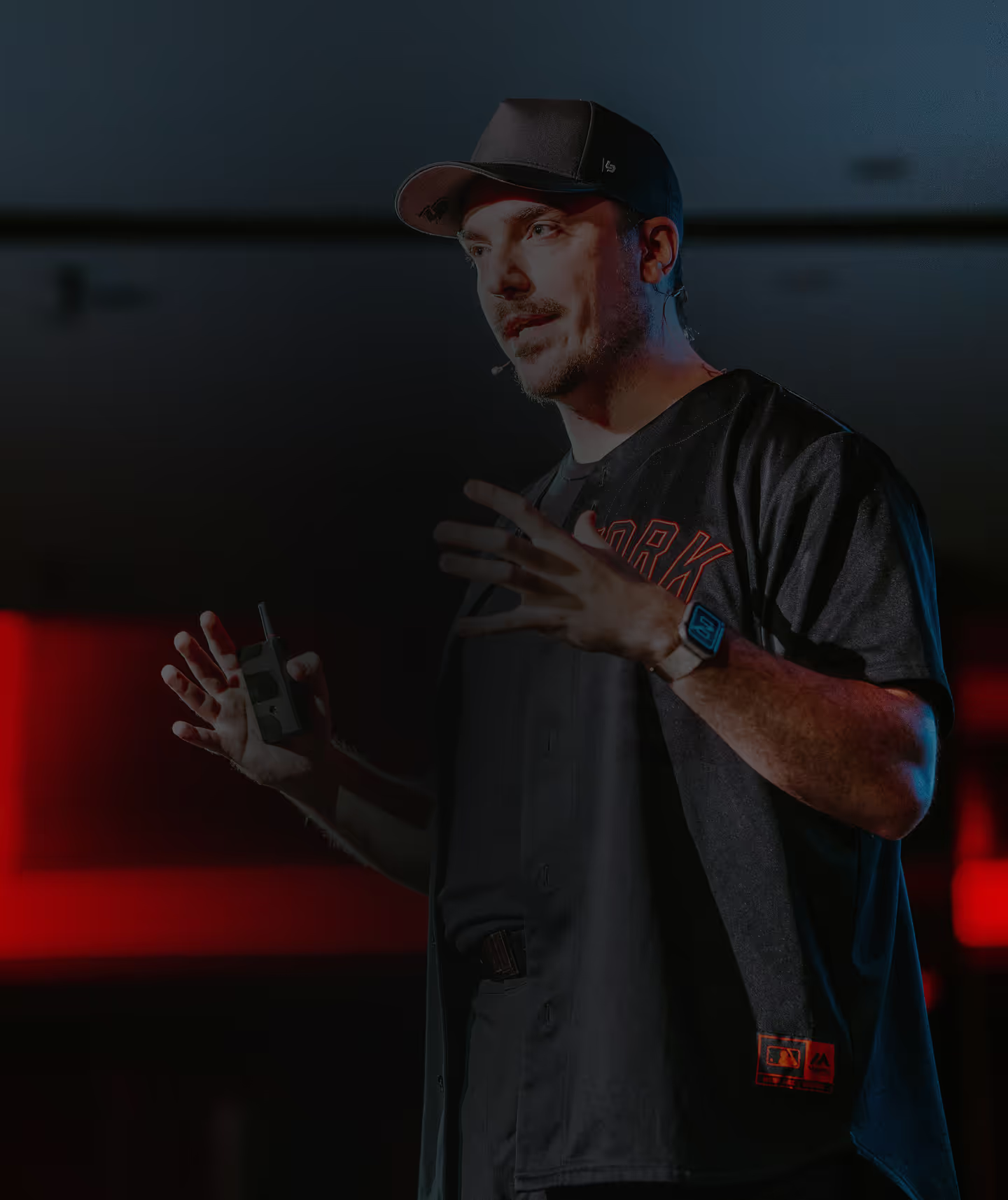
Enquire For Speaking

Let's Get You Branded
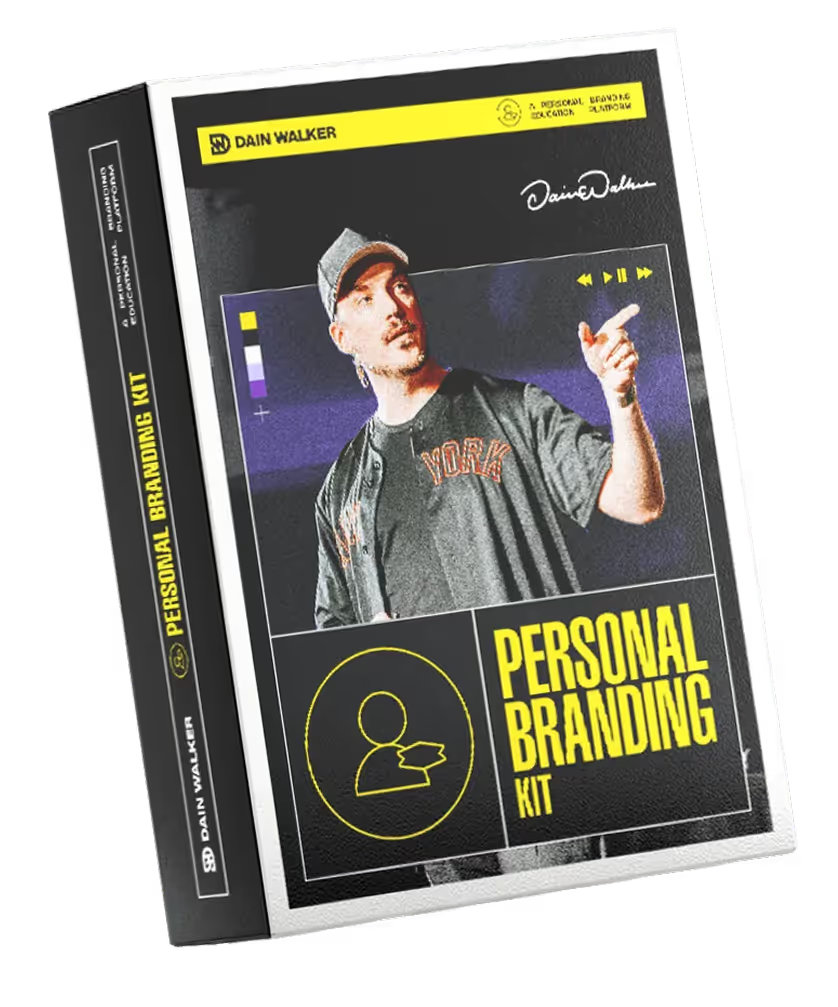
Apply to be a guest

Dive into insights from industry leaders and experts.




Stream now
Dive into expert advice and industry trends.




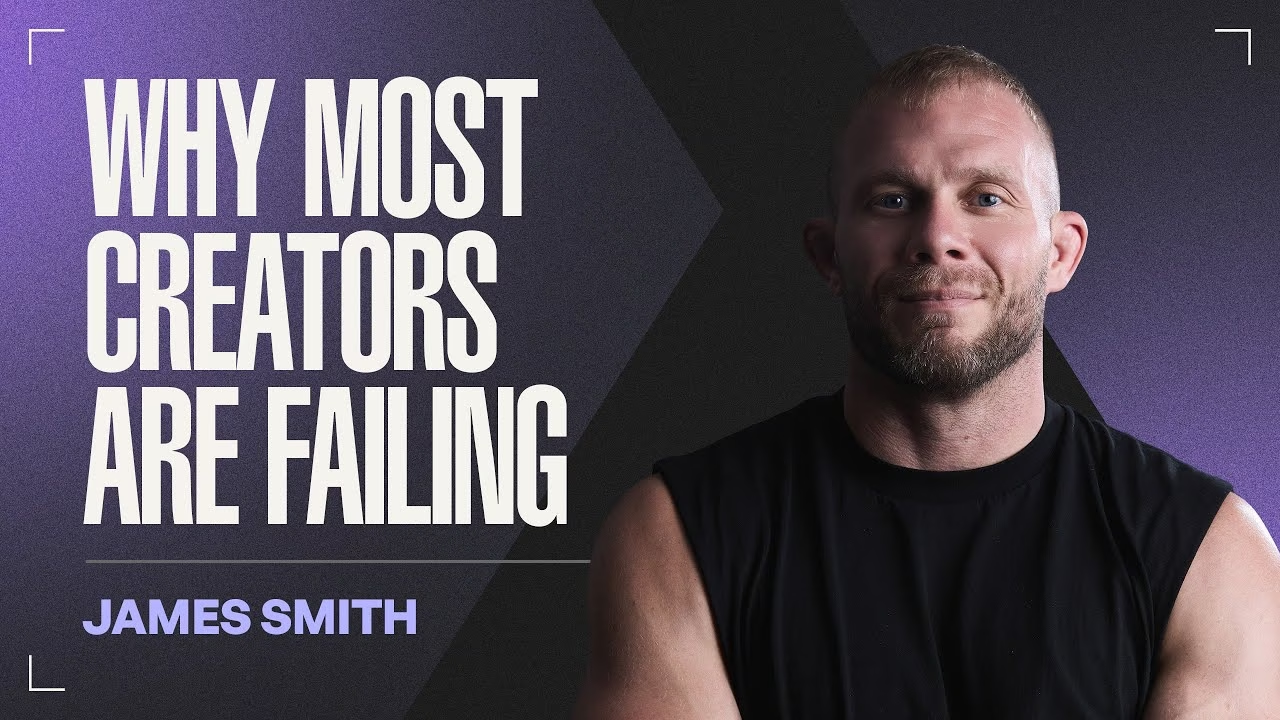

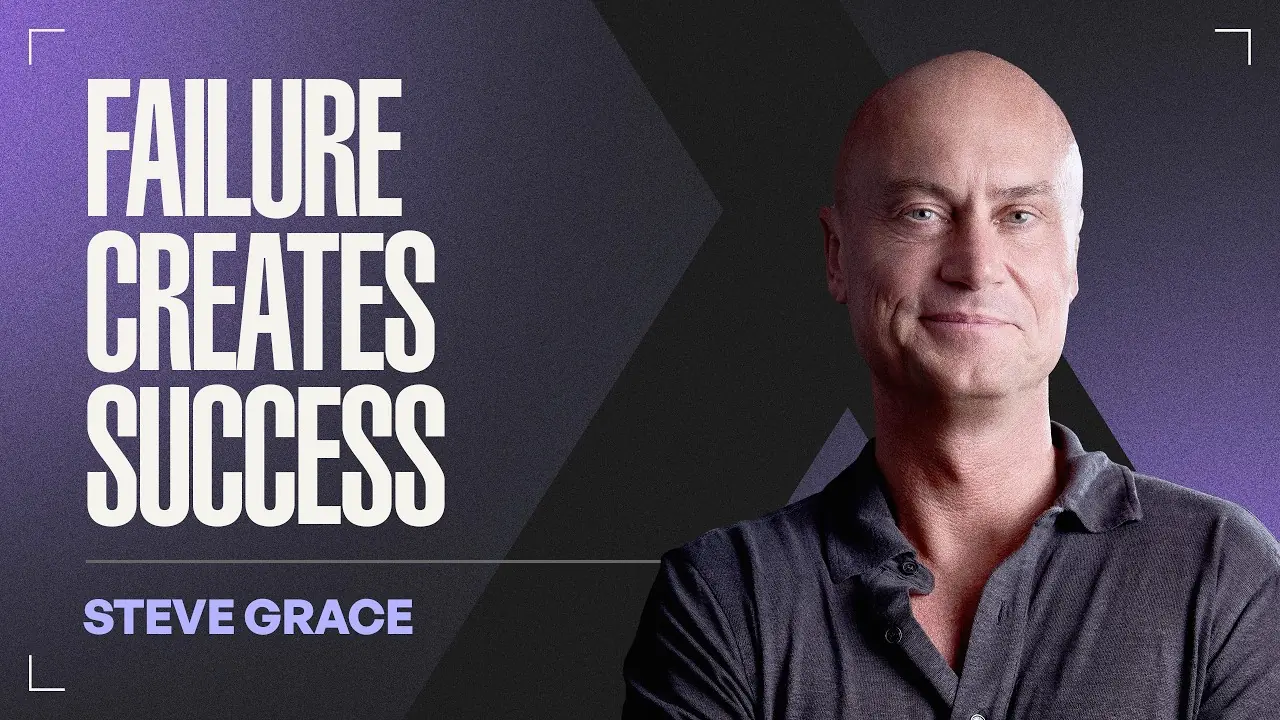




.avif)
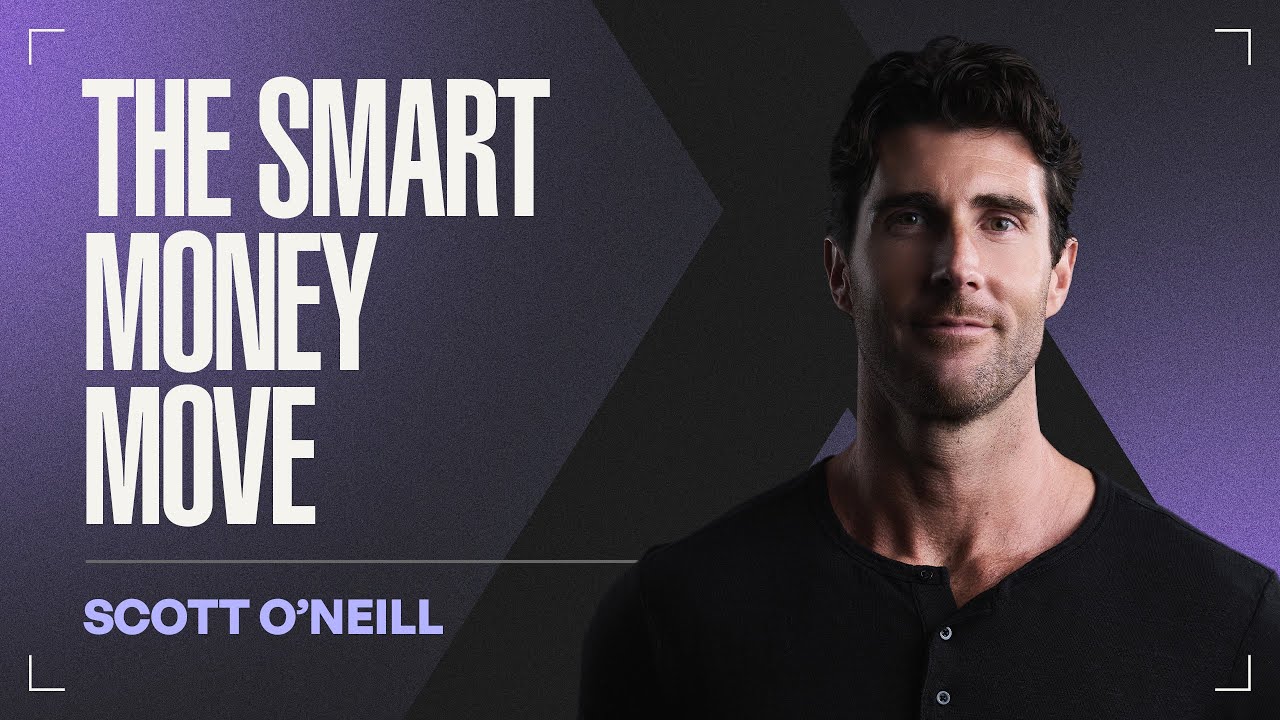


.avif)
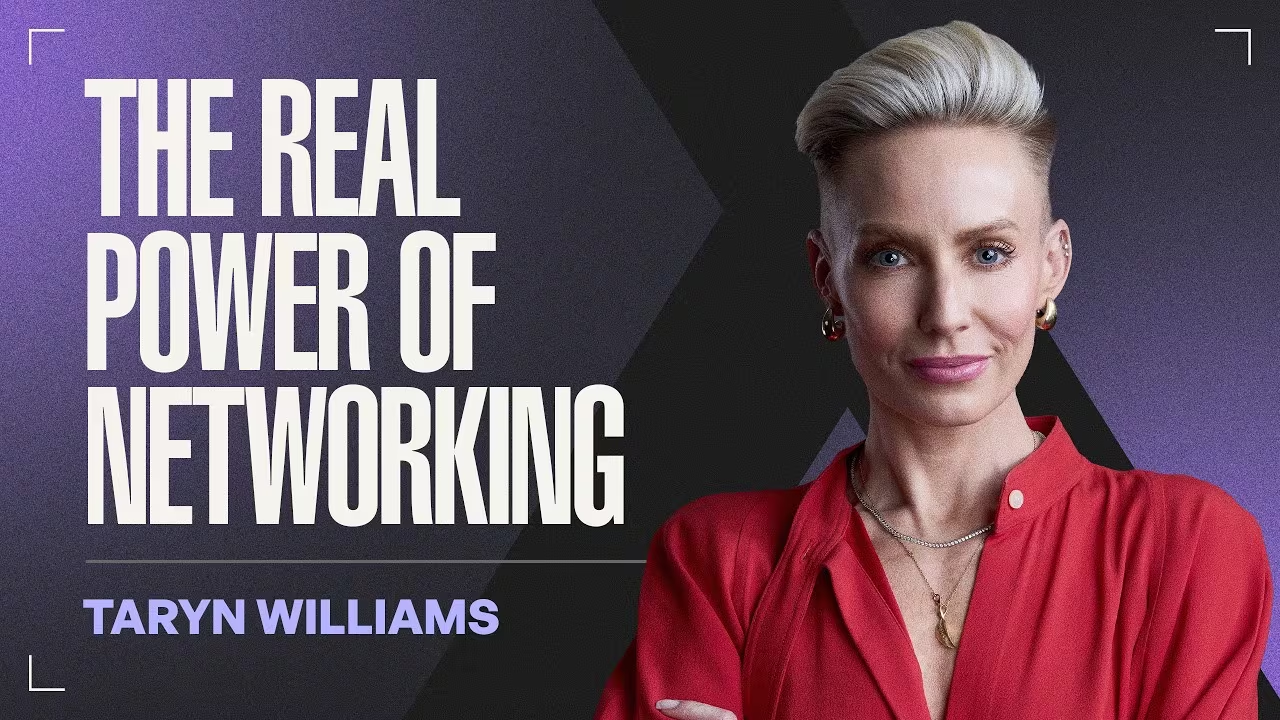

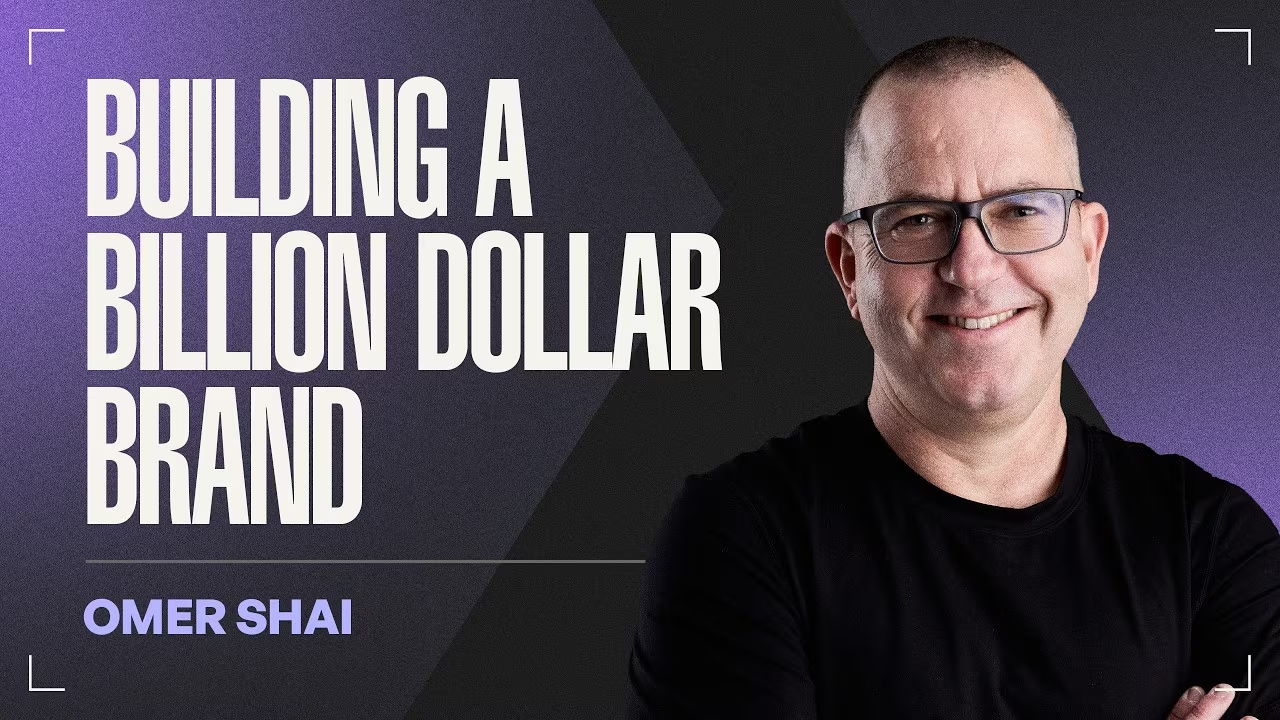

%20(1).avif)

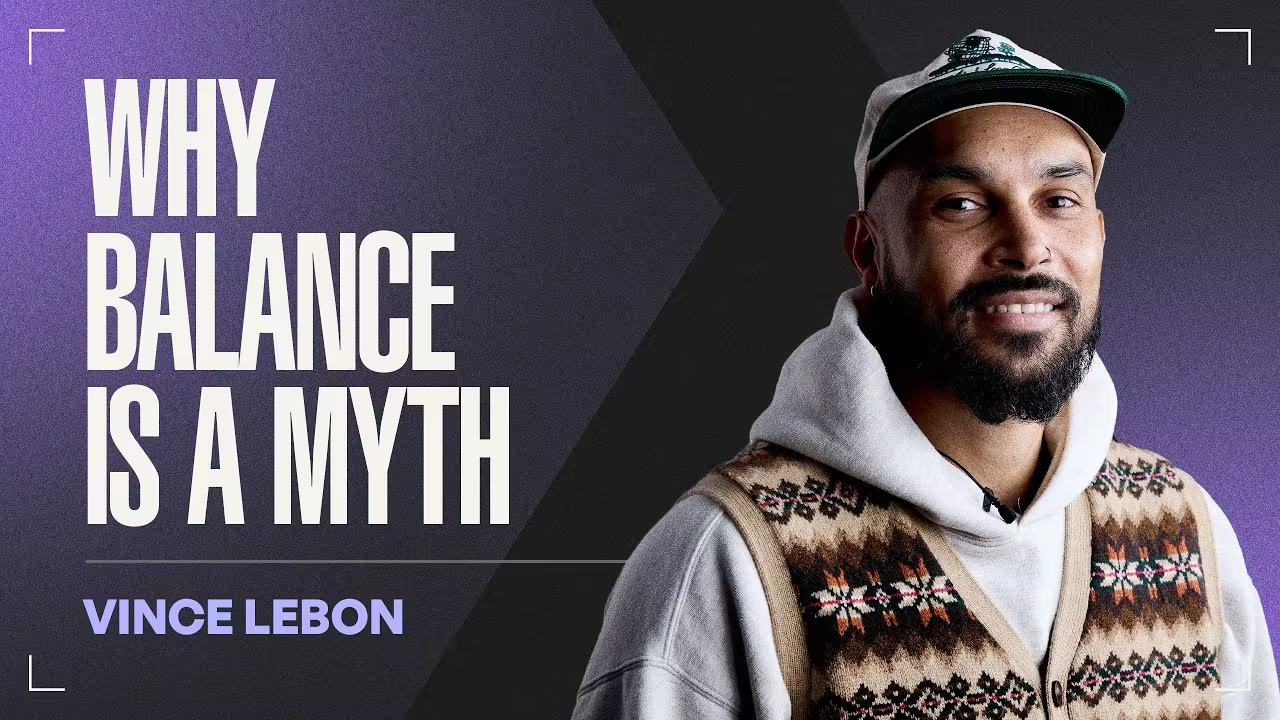




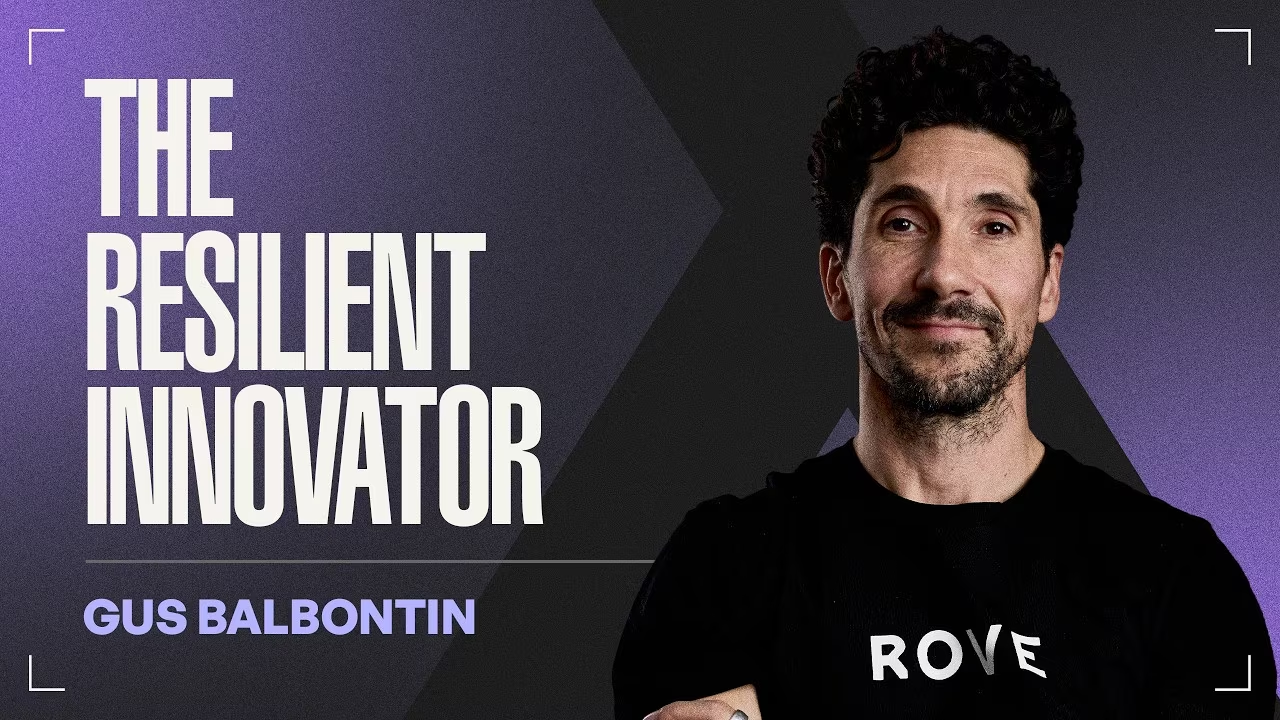



.avif)




